

Memoir vs Biography: When To Use Each One? What To Consider
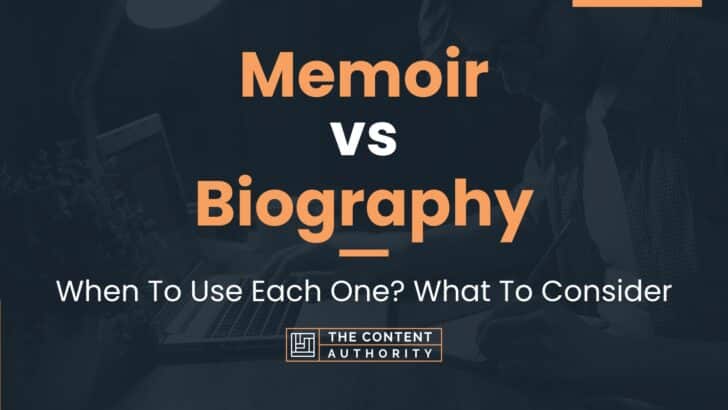
Are you confused about the difference between a memoir and a biography? You’re not alone. While these two types of writing are often used interchangeably, they are actually quite different. In this article, we’ll explore the nuances of memoir and biography writing, and help you understand which one is right for your project.
Let’s define our terms. A memoir is a type of writing that focuses on a specific period or event in the author’s life. It is typically written in the first person, and is often more subjective and emotional than a biography. A biography, on the other hand, is a comprehensive account of a person’s life, usually written by someone else. It is typically written in the third person, and is more objective and fact-based than a memoir.
So, which one is right for you? That depends on what you’re trying to accomplish. If you want to tell your own story and share your personal experiences, a memoir is probably the way to go. If you’re interested in chronicling someone else’s life, or providing a comprehensive overview of a historical figure, a biography is likely your best bet.
Now that we’ve defined our terms and explored the differences between memoir and biography writing, let’s dive deeper into each type of writing and examine the unique challenges and opportunities they present.
Define Memoir
A memoir is a type of autobiographical writing that focuses on a specific period or theme in the author’s life. It is a personal reflection that delves into the author’s experiences, emotions, and thoughts. Memoirs are typically written in the first person and are often anecdotal in nature. They can be used to explore personal growth, identity, relationships, and other aspects of the author’s life.
Some common characteristics of memoirs include:
- Emphasis on personal experience
- Subjective perspective
- Use of literary techniques such as dialogue, description, and reflection
- Focus on a specific time period or theme
Examples of well-known memoirs include “The Glass Castle” by Jeannette Walls, “The Year of Magical Thinking” by Joan Didion, and “Eat, Pray, Love” by Elizabeth Gilbert.
Define Biography
A biography is a written account of someone else’s life. It is a factual representation of the subject’s experiences, accomplishments, and contributions. Biographies are typically written in the third person and are based on research and interviews with the subject and/or those who knew them. They can be used to explore historical events, social movements, cultural trends, and other aspects of the subject’s life.
Some common characteristics of biographies include:
- Emphasis on factual information
- Objective perspective
- Use of primary and secondary sources
- Chronological organization
Examples of well-known biographies include “Steve Jobs” by Walter Isaacson, “The Immortal Life of Henrietta Lacks” by Rebecca Skloot, and “Malcolm X: A Life of Reinvention” by Manning Marable.
How To Properly Use The Words In A Sentence
When it comes to writing about someone’s life story, it’s important to understand the difference between a memoir and a biography. While these terms are often used interchangeably, they have distinct differences that should be recognized. One of the most important aspects of using these words correctly is understanding how to properly use them in a sentence.
How To Use “Memoir” In A Sentence
A memoir is a personal narrative that focuses on a specific period or theme in a person’s life. It is typically written in the first person and is based on the author’s own experiences and memories. When using the word “memoir” in a sentence, it’s important to make sure that it accurately reflects the context of the story being told. Here are some examples:
- After surviving a near-death experience, she decided to write a memoir about her journey.
- His memoir about growing up in a small town quickly became a bestseller.
- As a historian, I often turn to memoirs to gain a better understanding of the past.
As you can see from these examples, the word “memoir” is typically used to describe a personal story that is based on the author’s own experiences. It is often used in a literary context, and can be both informative and entertaining.
How To Use “Biography” In A Sentence
A biography, on the other hand, is a written account of a person’s life that is typically written by someone else. It is often more comprehensive than a memoir, and may include information from a variety of sources. When using the word “biography” in a sentence, it’s important to make sure that it accurately reflects the context of the story being told. Here are some examples:
- Her biography of Abraham Lincoln is considered one of the most authoritative works on the subject.
- The new biography of Steve Jobs sheds light on his personal life and business practices.
- As a researcher, I often consult biographies to gain a better understanding of historical figures.
As you can see from these examples, the word “biography” is typically used to describe a written account of a person’s life that is based on research and other sources. It is often used in an academic or historical context, and can provide valuable insights into the lives of important figures throughout history.
More Examples Of Memoir & Biography Used In Sentences
When it comes to understanding the difference between a memoir and a biography, it’s important to see how each word is used in context. Here are some examples of both terms used in sentences:
Examples Of Using Memoir In A Sentence
- Her memoir provided a candid look into her struggles with addiction.
- Reading his memoir made me feel like I was right there with him.
- The author’s memoir was a powerful reflection on the immigrant experience.
- She wrote a memoir about her time as a war correspondent.
- His memoir was a touching tribute to his late wife.
- In her memoir, she detailed the challenges of being a single mother.
- His memoir was a fascinating account of his time as a professional athlete.
- The memoir was a poignant reminder of the impact of the Civil Rights Movement.
- She published a memoir about her journey to becoming a successful entrepreneur.
- His memoir was a harrowing account of his experiences during the Vietnam War.
Examples Of Using Biography In A Sentence
- The biography chronicled the life of one of the greatest artists of the 20th century.
- Her biography of Marie Curie won the Pulitzer Prize for nonfiction .
- The author’s biography of Abraham Lincoln shed new light on the president’s personal life.
- Reading the biography of Steve Jobs inspired me to pursue my own entrepreneurial dreams.
- The biography of Martin Luther King Jr. provided a comprehensive look at his legacy.
- Her biography of Jane Austen was a fascinating exploration of the author’s life and work.
- The biography of Albert Einstein revealed the man behind the scientific genius.
- His biography of Winston Churchill was hailed as a masterpiece of historical writing.
- The biography of Princess Diana was a bestseller around the world.
- The author’s biography of Barack Obama was praised for its insight and depth.
Common Mistakes To Avoid
When it comes to writing about someone’s life story, it’s important to understand the differences between a memoir and a biography. Unfortunately, many people use these terms interchangeably, which can lead to confusion and misinformation. Here are some common mistakes to avoid:
Mistake #1: Using The Terms “Memoir” And “Autobiography” Interchangeably
While both a memoir and an autobiography are written by the person who experienced the events being described, there is a key difference between the two. A memoir is a specific type of autobiography that focuses on a particular period or theme in the author’s life, rather than attempting to cover their entire life story. Using the terms “memoir” and “autobiography” interchangeably can lead to confusion and inaccuracies.
Mistake #2: Assuming That All Biographies Are Objective
While biographies are often thought of as objective accounts of a person’s life, the truth is that all biographies are written from a particular perspective. Biographers make choices about which events and details to include, and how to interpret them. It’s important to be aware of the author’s perspective when reading a biography, and to seek out multiple sources to get a more complete picture.
Mistake #3: Failing To Fact-check
Whether you’re writing a memoir or a biography, it’s essential to fact-check your work. This means verifying details with multiple sources, and being willing to correct errors if they are discovered. Failing to fact-check can lead to inaccuracies and undermine the credibility of your work.
Tips For Avoiding These Mistakes
- Be clear about the differences between a memoir and a biography, and use the terms correctly.
- Be aware of the author’s perspective when reading a biography, and seek out multiple sources to get a more complete picture.
- Fact-check your work thoroughly, and be willing to correct errors if they are discovered.
Context Matters
When it comes to writing about someone’s life, the choice between a memoir and a biography can depend on the context in which they are used. While both genres aim to tell the story of a person’s life, they differ in their approach and focus. Understanding the context in which the story is being told can help determine which genre is best suited for the task at hand.
Examples Of Different Contexts
Let’s take a look at some examples of different contexts and how the choice between memoir and biography might change:
Academic Context
In an academic context, a biography may be more appropriate as it is a more objective and comprehensive approach to telling a person’s life story. Biographies often include extensive research, interviews with people who knew the subject, and a detailed analysis of the subject’s life and accomplishments. A memoir, on the other hand, is a more personal and subjective account of a person’s life, often written by the subject themselves. While a memoir can provide valuable insights into the subject’s life, it may not be as reliable or comprehensive as a biography in an academic setting.
Personal Context
In a personal context, such as a family history project, a memoir may be more appropriate. A memoir allows the subject to tell their own story in their own words, providing a more personal and intimate account of their life. This can be especially valuable for future generations who want to understand their family history and learn about their ancestors. A biography, while still informative, may not capture the same level of personal detail and emotion as a memoir.
Entertainment Context
In an entertainment context, such as a movie or TV show, a memoir may be more appealing as it can provide a more dramatic and emotional story. Memoirs often focus on specific themes or events in a person’s life, such as overcoming adversity or achieving success, which can make for a compelling and engaging narrative. Biographies, while still informative, may not have the same level of emotional impact as a memoir in an entertainment context.
The choice between a memoir and a biography ultimately depends on the context in which they are used. While both genres aim to tell the story of a person’s life, they differ in their approach and focus. Understanding the context in which the story is being told can help determine which genre is best suited for the task at hand.
Exceptions To The Rules
While the rules for using memoir and biography are generally clear, there are some exceptions where they might not apply. Here are some explanations and examples for each case:
1. Fictional Accounts
When a writer creates a story that is based on real people and events, but is not entirely factual, it can be difficult to determine whether to classify it as a memoir or biography. In this case, it is often best to consider the work as a fictional account, rather than a true-to-life representation of events. For example, Truman Capote’s “In Cold Blood” is often referred to as a non-fiction novel, as it is based on real people and events, but is written in a fictionalized style.
2. Collaborative Works
When a writer collaborates with the subject of the work to create a book, it can be challenging to determine whether to classify it as a memoir or biography. In this case, it is often best to consider the work as a collaborative effort, rather than strictly a memoir or biography. For example, “Steve Jobs” by Walter Isaacson was written with the cooperation of Jobs himself, and is considered a collaborative biography.
3. Hybrid Forms
There are some works that do not fit neatly into the categories of memoir or biography, but instead combine elements of both. These hybrid forms can be challenging to classify, but are often rich and complex works that offer unique perspectives on the subject. For example, “The Year of Magical Thinking” by Joan Didion is a memoir that also incorporates elements of biography, as Didion reflects on her own experiences while also exploring the life and death of her husband.
4. Unauthorized Works
When a writer creates a work about a subject without their cooperation or permission, it can be difficult to determine whether to classify it as a memoir or biography. In this case, it is often best to consider the work as an unauthorized biography, rather than a memoir. For example, “The Last Days of Marilyn Monroe” by Donald Spoto is an unauthorized biography that explores the life and death of the Hollywood icon.
Practice Exercises
Now that you have a better understanding of the differences between memoir and biography, it’s time to put your knowledge to the test. Here are some practice exercises to help you improve your understanding and use of these terms in sentences:
Exercise 1: Memoir Or Biography?
Read the following descriptions and determine whether they are more suited for a memoir or a biography.
| Description | Type |
|---|---|
| A detailed account of a person’s life, from birth to death, including their accomplishments and challenges. | Biography |
| A personal account of a specific period or experience in a person’s life, often written in a reflective and introspective style. | Memoir |
| An in-depth exploration of a person’s personality, motivations, and character traits. | Biography |
| A collection of personal essays that explore a common theme or topic, often written by a well-known author. | Memoir |
Exercise 2: Using Memoir And Biography In Sentences
Complete the following sentences with either memoir or biography:
- Michelle Obama’s Becoming is a powerful and inspiring ______ that explores her life before, during, and after her time as First Lady.
- Maya Angelou’s I Know Why the Caged Bird Sings is a classic example of a ______ that explores the author’s experiences growing up in the segregated South.
- Elon Musk’s ______ provides a detailed look at the entrepreneur’s life and his ambitious goals for the future.
- In her ______ , Joan Didion reflects on the sudden death of her husband and the impact it had on her life and writing.
By practicing with these exercises, you can improve your understanding of memoir and biography and how they differ from one another. Keep in mind that while there are similarities between the two genres, they each have their own unique characteristics and purposes.
After exploring the differences between memoir and biography, it is clear that these two forms of writing have distinct characteristics and purposes. Memoirs are personal accounts of one’s own life experiences, while biographies are objective accounts of another person’s life. Memoirs are often more subjective and focus on emotional experiences, while biographies tend to be more factual and cover a wider range of events.
It is important for writers to understand the differences between these two genres in order to effectively communicate their intended message. For those looking to write their own life story, a memoir may be the appropriate choice, while those interested in chronicling the life of another may want to consider writing a biography.
Key Takeaways
- Memoirs are personal accounts of one’s own life experiences.
- Biographies are objective accounts of another person’s life.
- Memoirs are often more subjective and focus on emotional experiences, while biographies tend to be more factual and cover a wider range of events.
- Understanding the differences between memoir and biography is crucial for effective communication.
By continuing to learn about grammar and language use, writers can improve their ability to effectively convey their message and connect with their audience. Whether writing a memoir or a biography, mastering the nuances of language can make all the difference in creating a compelling and impactful story.
Shawn Manaher is the founder and CEO of The Content Authority. He’s one part content manager, one part writing ninja organizer, and two parts leader of top content creators. You don’t even want to know what he calls pancakes.

Home » Writing » Autobiography vs. Biography vs. Memoir

What is a Biography?
A biography, also called a bio, is a non-fiction piece of work giving an objective account of a person’s life. The main difference between a biography vs. an autobiography is that the author of a biography is not the subject. A biography could be someone still living today, or it could be the subject of a person who lived years ago.
Biographies include details of key events that shaped the subject’s life, and information about their birthplace, education, work, and relationships. Biographers use a number of research sources, including interviews, letters, diaries, photographs, essays, reference books, and newspapers. While a biography is usually in the written form, it can be produced in other formats such as music composition or film.
If the target person of the biography is not alive, then the storytelling requires an immense amount of research. Interviews might be required to collect information from historical experts, people who knew the person (e.g., friends and family), or reading other older accounts from other people who wrote about the person in previous years. In biographies where the person is still alive, the writer can conduct several interviews with the target person to gain insight on their life.
The goal of a biography is to take the reader through the life story of the person, including their childhood into adolescence and teenage years, and then their early adult life into the rest of their years. The biography tells a story of how the person learned life’s lessons and the ways the person navigated the world. It should give the reader a clear picture of the person’s personality, traits, and their interaction in the world.
Biographies can also be focused on groups of people and not just one person. For example, a biography can be a historical account of a group of people from hundreds of years ago. This group could have the main person who was a part of the group, and the author writes about the group to tell a story of how they shaped the world.
Fictional biographies mix some true historical accounts with events to help improve the story. Think of fictional biographies as movies that display a warning that the story is made of real characters, but some events are fictional to add to the storyline and entertainment value. A lot of research still goes into a fictional biography, but the author has more room to create a storyline instead of sticking to factual events.
Examples of famous biographies include:
- His Excellency: George Washington by Joseph J. Ellis
- Einstein: The Life and Times by Ronald William Clark
- Princess Diana – A Biography of The Princess of Wales by Drew L. Crichton

What is an Autobiography?
An autobiography is the story of a person’s life written by that person. Because the author is also the main character of the story, autobiographies are written in the first person. Usually, an autobiography is written by the person who is the subject of the book, but sometimes the autobiography is written by another person. Because an autobiography is usually a life story for the author, the theme can be anything from religious to a personal account to pass on to children.
The purpose of an autobiography is to portray the life experiences and achievements of the author. Therefore, most autobiographies are typically written later in the subject’s life. It’s written from the point of view of the author, so it typically uses first person accounts to describe the story.
An autobiography often begins during early childhood and chronologically details key events throughout the author’s life. Autobiographies usually include information about where a person was born and brought up, their education, career, life experiences, the challenges they faced, and their key achievements.
On rare occasions, an autobiography is created from a person’s diary or memoirs. When diaries are used, the author must organize them to create a chronological and cohesive story. The story might have flashbacks or flashforwards to describe a specific event, but the main storyline should follow chronological order from the author’s early life to their current events.
One of the main differences between an autobiography vs. a biography is that autobiographies tend to be more subjective. That’s because they are written by the subject, and present the facts based on their own memories of a specific situation, which can be biased. The story covers the author’s opinions on specific subjects and provides an account of their feelings as they navigate certain situations. These stories are also very personal because it’s a personal account of the author’s life rather than a biography where a third party writes about a specific person.
Examples of famous autobiographies include:
- The Story of My Life by Helen Keller
- The Diary of a Young Girl by Anne Frank
- Losing My Virginity by Richard Branson

What is a Memoir?
Memoir comes from the French word mémoire , meaning memory or reminiscence. Similar to an autobiography, a memoir is the story of a person’s life written by that person. These life stories are often from diary entries either from a first-person account or from a close family member or friend with access to personal diaries.
The difference between a memoir vs. an autobiography is that a memoir focuses on reflection and establishing an emotional connection, rather than simply presenting the facts about their life. The author uses their personal knowledge to tell an intimate and emotional story about the private or public happenings in their life. The author could be the person in the story, or it can be written by a close family member or friend who knew the subject person intimately. The topic is intentionally focused and does not include biographical or chronological aspects of the author’s life unless they are meaningful and relevant to the story.
Memoirs come in several types, all of which are written as an emotional account of the target person. They usually tell a story of a person who went through great struggles or faced challenges in a unique way. They can also cover confessionals where the memoir tells the story of the author’s account that contradicts another’s account.
This genre of writing is often stories covering famous people’s lives, such as celebrities. In many memoir projects, the celebrity or person of interest needs help with organization, writing the story, and fleshing out ideas from the person’s diaries. It might take several interviews before the story can be fully outlined and written, so it’s not uncommon for a memoir project to last several months.
Memoirs do not usually require as much research as biographies and autobiographies, because you have the personal accounts in diary entries and documents with the person’s thoughts. It might require several interviews, however, before the diary entries can be organized to give an accurate account on the person’s thoughts and emotions. The story does not necessarily need to be in chronological order compared to an autobiography, but it might be to tell a better story.
Examples of famous memoirs include:
- Angela’s Ashes by Frank McCourt
- I Know Why the Caged Bird Sings by Maya Angelou
- Personal Memoirs of Ulysses S. Grant by Ulysses S. Grant
Autobiography vs. Biography vs. Memoir Comparison Chart
| An account of a person’s life | An account of one’s own life | A personal account of a specific time or experience |
| Written in the third person | Written in the first person | Written in the first person |
| Objective | Subjective | Subjective |
| Presents information collected from the subject, their acquaintances, or from other sources | Presents facts as they were experienced by the person | Presents facts as they were experienced by the person |
| Written to inform and establish a context | Written to inform and explain the motivation and thoughts behind actions and decisions | Written to reflect on and explore the emotion of an experience |
| Has restricted access to the subject’s thoughts and feelings | Offers access to personal thoughts and feelings | Offers access to personal thoughts, feelings, reactions, and reflections |
| Can be written anytime | Usually written later in life | Can be written anytime |
Check out some of our blogs to learn more about memoirs:
- What is a memoir?
- 5 tips for writing a memoir
- Your memoir is your legacy
Ready to get started on your own memoir, autobiography, or biography? Download our free desktop book-making software, BookWright .
Autobiographies , Biographies , memoirs
This post doesn't have any comment. Be the first one!
This is a unique website which will require a more modern browser to work! Please upgrade today!
This is a modern website which will require Javascript to work.
Please turn it on!
Memoir vs Biography (What’s the Difference?)
Memoirs and biographies both provide insight into individuals’ lives, but they differ in focus and scope.
- A memoir is a personal account of the author’s own experiences, reflecting on specific periods or themes in their life. It emphasizes personal perspective and emotional truth.
- In contrast, a biography offers a comprehensive account of someone’s life, authored by another person. Biographies are broader in scope and aim to provide an objective, factual narrative.
While memoirs focus on personal storytelling and subjective insights, biographies present an in-depth and researched account of a person’s life journey.
Definition: A memoir is a non-fiction literary work where the author recounts personal experiences from their life. It often focuses on specific events, periods, or themes rather than covering the author’s entire life.
Usage: Memoirs allow authors to share intimate insights and reflections on their personal experiences. They often have a strong narrative voice and convey emotions and subjective truths. For example, in “Becoming” by Michelle Obama, the former First Lady shares personal stories about her upbringing, challenges, and triumphs, offering readers a glimpse into her world.
- “The Glass Castle” by Jeannette Walls recounts the author’s unconventional childhood.
- “Educated” by Tara Westover provides an account of her journey from a strict upbringing to achieving academic success.
Definition: A biography is a detailed and comprehensive account of a person’s life written by someone else. It aims to present an objective, factual narrative of the individual’s life story.
Usage: Biographies often involve extensive research, including interviews, letters, and historical documents. They aim to provide a complete view of a person’s life, covering personal, professional, and social aspects. For instance, in “Steve Jobs” by Walter Isaacson, the author meticulously chronicles Jobs’s life, from his early days to his achievements in technology.
- “Alexander Hamilton” by Ron Chernow traces the life of the founding father.
- “The Immortal Life of Henrietta Lacks” by Rebecca Skloot explores the life and legacy of Henrietta Lacks, whose cells revolutionized medical research.
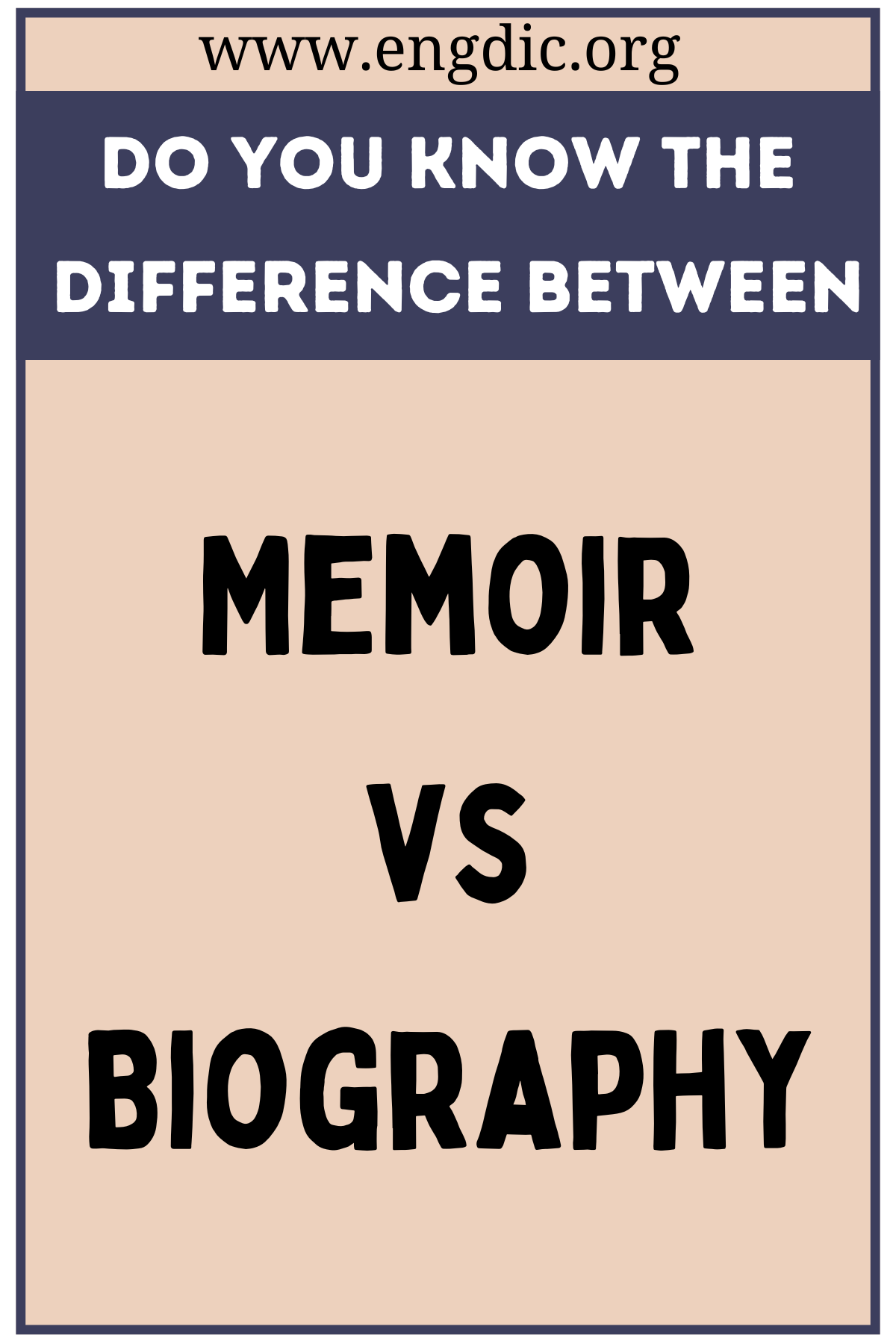
Related Posts
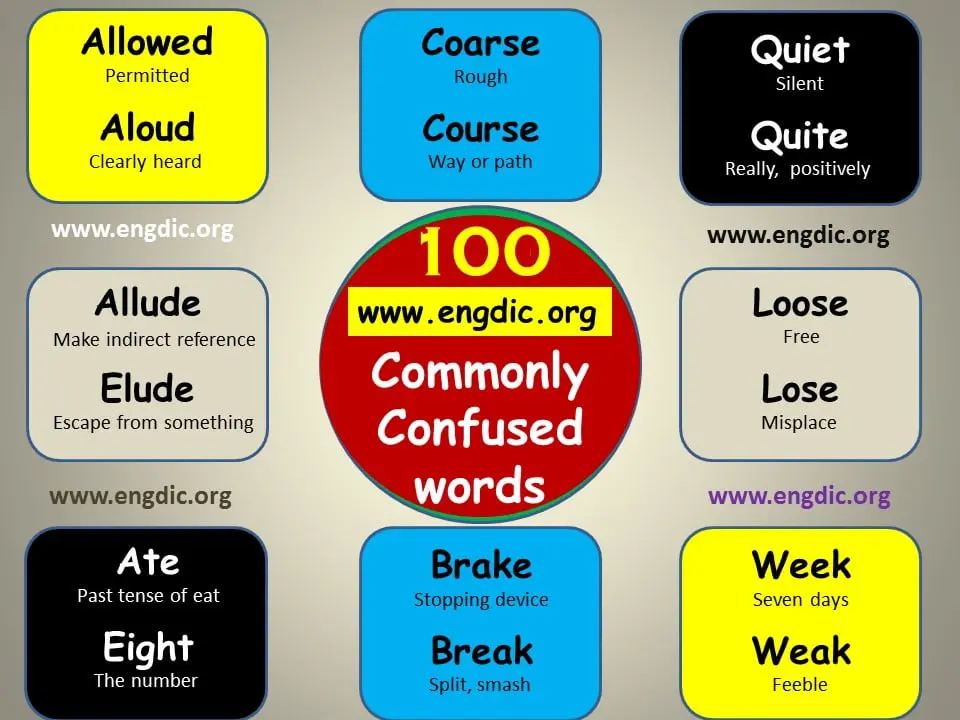
100 Confusing Words | Commonly confused words Pdf
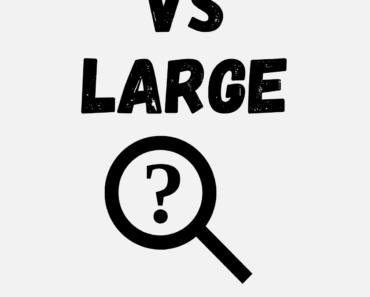
Big vs Large (What’s the Difference?)
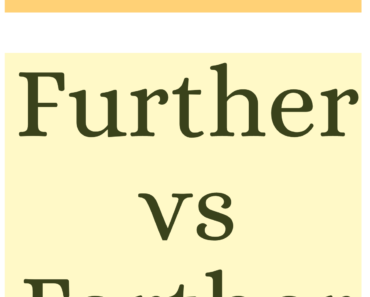
Further vs Farther (What’s the Difference?)
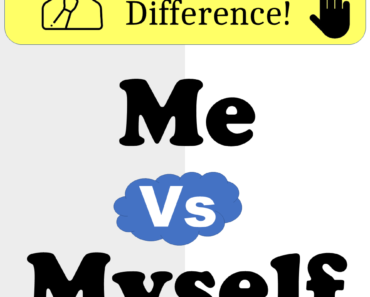
Me vs Myself! Learn the Difference
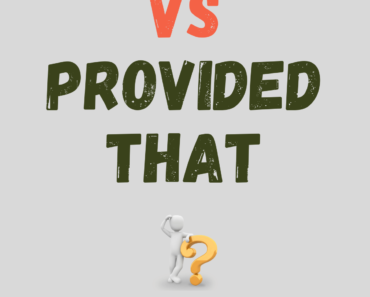
As Long As vs Provided That (What’s the Difference?)
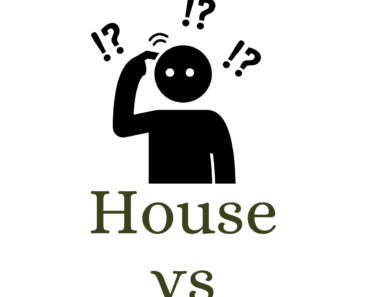
House vs Home (What’s the Difference?)
About the author.
Hi, I'm USMI, engdic.org's Author & Lifestyle Linguist. My decade-long journey in language and lifestyle curation fuels my passion for weaving words into everyday life. Join me in exploring the dynamic interplay between English and our diverse lifestyles. Dive into my latest insights, where language enriches every aspect of living.
Autobiography vs. Biography vs. Memoir: What’s the Difference?
This post may contains affiliate links. If you click and buy we may make a commission, at no additional charge to you. Please see our disclosure policy for more details.
Autobiographies, biographies, and memoirs. These are the three main formats that tell a real person’s life story.
But unless you’re in the know, it can be a little confusing to tell the difference between each one. While they all serve a similar purpose, they each have distinctions that set them apart from one another.
In this post, I’ll explain the differences between autobiographies, biographies, and memoirs. And to clear up any confusion, I’ll provide some famous examples of each one.
Table of Contents
Autobiography vs. Biography vs. Memoir
Autobiographies.
An autobiography is an account of a person’s life, written by that person. The word originates from the Greek’ auto’, ‘bios’ and ‘graphein’, meaning ‘self,’ ‘life,’ and ‘to write.’
Since the narrator is also the subject of the story, autobiographies tend to be written in the first person.
The majority of autobiographies begin by documenting childhood experiences, working their way chronologically upwards through the decades. The author will include major and minor events that have shaped their lives and stood out to them on their journey.
A detailed autobiography will cover things like a person’s earliest memories, early family life, and upbringing. They might share stories from their education, their careers, and their relationships, as well as triumphs and challenges they’ve faced along the way.
Since an autobiography is a life story, most people wait until their later years before they pen their own, but this isn’t always true. There are plenty of autobiographies written by younger people too. Anyone that has led an interesting life can write an autobiography.
Here’s a few examples of autobiographies written by famous people:
- Autobiography of Benjamin Franklin by Benjamin Franklin
Benjamin Franklin wrote his autobiography from 1771 to 1790. It tells the fascinating tale of his rise to power, from a boy born into a lower-middle-class family in Boston, Massachusetts, to becoming one of America’s founding fathers.
- Mein Kampf by Adolf Hitler
Adolf Hitler’s autobiography Mein Kampf, meaning ‘my struggle,’ gives us a raw and eye-opening look into the unseen life of this mass-murdering dictator. It’s not an easy or lighthearted read by any means. Still, it gives the reader a fascinating insight into his early life, his rise to power, and his own justifications behind his monstrous genocidal policies.
- The Diary of a Young Girl by Anne Frank
This is a more unusual example of an autobiography, but it’s an autobiography non the less. Ann Frank’s real-life diary documents her experience as a Jewish teenager who was forced into hiding during World War II.
Biographies
Just like an autobiography, a biography tells a person’s life story. But in this case, it is written by another author, rather than the person themselves.
Biographies are most often written about famous, notable people who have led interesting lives. They usually include factual details, such as their birthplace, their education, their partners and relationships, and facts about their career.
But a good biography will also cover how key events have shaped a person’s life. Biography authors will compile information from a wide range of sources, including interviews with the person in question or their friends, colleagues, and family members. They may also source information from letters, diaries, past interviews, and periodicals.
Here are a few examples of famous biographies:
- Churchill: A Life by Martin Gilbert
Many authors over the year have written biographies about his iconic British prime minister. Still, it’s Martin Gilbert’s work which has been by far the most successful and celebrated.
Through years of in-depth research, Gilbert gives readers a comprehensive and honest insight into the life of the man who led Britain through the Second World War.
- Frida: Biography of Frida Kahlo by Hayden Herrera
Hayden Herrera wrote this eye-opening biography of celebrated painter Frida Kahlo back in 1983, and it has since become the most authoritative account of her life in print.
The book documents Kahlo’s struggles and pain, but it also tells of her artistic prowess and her determination to leave a positive influence on the world.
- Sylvia Plath and Life Before Ted by Andrew Wilson
Rather than focusing on Sylvia Plath’s painful struggles with mental health and her turbulent marriage to English poet Ted Hughs, this biography tells of Plath’s earlier life, before the pair ever met. Taking information directly from her detailed diary entries, Wilson has complied an insightful picture of the American writer’s early experiences before she found fame.
Taken from the French word for ‘memory,’ a memoir is a non-fiction, self-written account of a person’s life. But unlike an autobiography, a memoir focuses much more on the emotional journey rather than chronologically recounting facts and events.
Memoirs are essentially a collection of memories that are important to the author, and they paint an intimate portrait of what it was like to be in their shoes.
Due to the similar nature of memoirs and autobiographies, it’s sometimes hard to denote the difference between the two, especially in the modern era when genres are often blended, and new ways of writing become commonplace.
One key thing to remember is that a memoir is usually less of a timeline of events and more an informal, emotional picture of a person’s life. Memoirs will often focus on things like past regrets and life lessons learned along the way, whereas autobiographies concentrate on facts and things that happened.
Here are a few examples of famous memoirs:
- I Know Why the Caged Bird Sings by Maya Angelou
The American writer and civil rights activist Maya Angelou wrote a total of seven autobiographies and memoirs during her lifetime, but this is the most notable one of them all.
This famous memoir documents the first seventeen years of her life as a young African American woman, and all of the struggles and turmoils she faced and overcame during that time.
- Eat Pray Love by Elizabeth Gilbert
This travel memoir written by the New York Times best-selling author Elizabeth Gilbert was subsequently turned into a blockbuster movie starring Julia Roberts.
It documents Gilbert’s personal journey of rebirth following a painful divorce and invites the reader to share the valuable and life changing lessons she learns along the way.
- Angela’s Ashes by Frank McCourt
Frank McCourt’s moving memoir takes us on an in-depth journey through his childhood years when he lived a profoundly impoverished life in Ireland during the midst of the Great Depression.
It won a 1997 Pulitzer Prize and has also been adapted to the silver screen.
Autobiographies, biographies, and memoirs all do one job: they tell a person’s non-fictional life story. But as you can see, each one is unique in its own way.
Do you have a favorite autobiography, biography, or memoir?
Let us know in the comments below.
Check out these other great articles!
- 7 Essential Tips for Writing Poetry
- The Best Note Taking App for Writers
- 6 Tips for Writing Creative Non-Fiction
- 11 Extraordinary Stephen King Writing Tips
- 6 Tips for Writing a Book All Writers Must Know
Leave a Comment Cancel reply
What’s the Difference Between a Memoir and an Autobiography?
By ellen gutoskey | jan 5, 2022.
On the literary genre spectrum, memoirs and autobiographies are right next to each other. They’re both nonfiction accounts of the author’s personal experience, usually written in first person (i.e. using I , me , and other first-person pronouns). But despite their similarities—and the fact that memoir and autobiography are often used interchangeably—they’re technically separate genres.
Since an autobiography is essentially just a biography written by the person it’s about, it has pretty much all the characteristics of a regular biography. As MasterClass explains , the narrative typically progresses chronologically and covers the subject’s whole life (thus far), with a focus on facts. That’s not to say autobiographies by default have bare-bones prose or a lack of emotion—the story of someone’s life will likely feature some fascinating formative memories and the feelings that came with them.
But those elements are much more integral to a memoir than an autobiography. According to Book Riot , a memoir doesn’t usually cover the author’s entire life, but instead a specific period or themes within it. Joan Didion’s The Year of Magical Thinking , for example, centers on the year after her husband, John Gregory Dunne, died of a heart attack in late 2003. It’s just as much a discourse on grief as it is an account of what happened in Didion’s life that year—and you might pick it up to read about grief rather than to learn about the author herself. Though Didion was, by that point in her career, famous enough that people would be interested to read about her experiences in particular, that’s not always the case with memoirists. Sometimes, it’s the subject matter that attracts readers, not the name of the author.
If you crack open an autobiography, on the other hand, it’s probably because you want to learn about the person who wrote it. Autobiographers are usually celebrities, from activists like Malala Yousafzai and Nelson Mandela to athletes like Andre Agassi —people who’ve achieved such success and/or have lived such high-profile lives that you’d want to read their full stories, starting from the cradle.
All that said, the differences between memoirs and autobiographies are more general trends than definitive guidelines. There’s no rule that says your memoir can’t be chronological, or that your autobiography must include your year and place of birth in order to be considered a true autobiography.
Have you got a Big Question you'd like us to answer? If so, let us know by emailing us at [email protected] .

What Are the Major Differences Between Memoir and Autobiography?
Rebecca Hussey
Rebecca holds a PhD in English and is a professor at Norwalk Community College in Connecticut. She teaches courses in composition, literature, and the arts. When she’s not reading or grading papers, she’s hanging out with her husband and son and/or riding her bike and/or buying books. She can't get enough of reading and writing about books, so she writes the bookish newsletter "Reading Indie," focusing on small press books and translations. Newsletter: Reading Indie Twitter: @ofbooksandbikes
View All posts by Rebecca Hussey
Feeling confused about the difference between memoir and autobiography? You’re not the only one. The terms are sometimes used interchangeably, and there is a lot of overlap between the two, so confusion is understandable. But there are some basic differences that will help you distinguish between them and make sure you are using the most appropriate word. Knowing the difference will help you choose what to read, as well: you should know what you are getting into when you pick up a book labeled memoir vs. autobiography.
First, let’s discuss similarities between the two. Both autobiography and memoir are first-person accounts of the writer’s life. This means the writer is describing her or his life using “I” and “me” (“I did this, then this happened to me,” etc.) One exception to this is that sometimes autobiographies are written in the third person (where the author refers to him or herself as “he” or “she”), but this is not common and rarely seen in contemporary writing. Mostly, both genres are about writers telling readers about their lives in their own voice.
That’s pretty simple. What’s trickier is figuring out what makes these genres different. So here’s a breakdown of the difference between memoir and autobiography, that I’ll discuss more below.
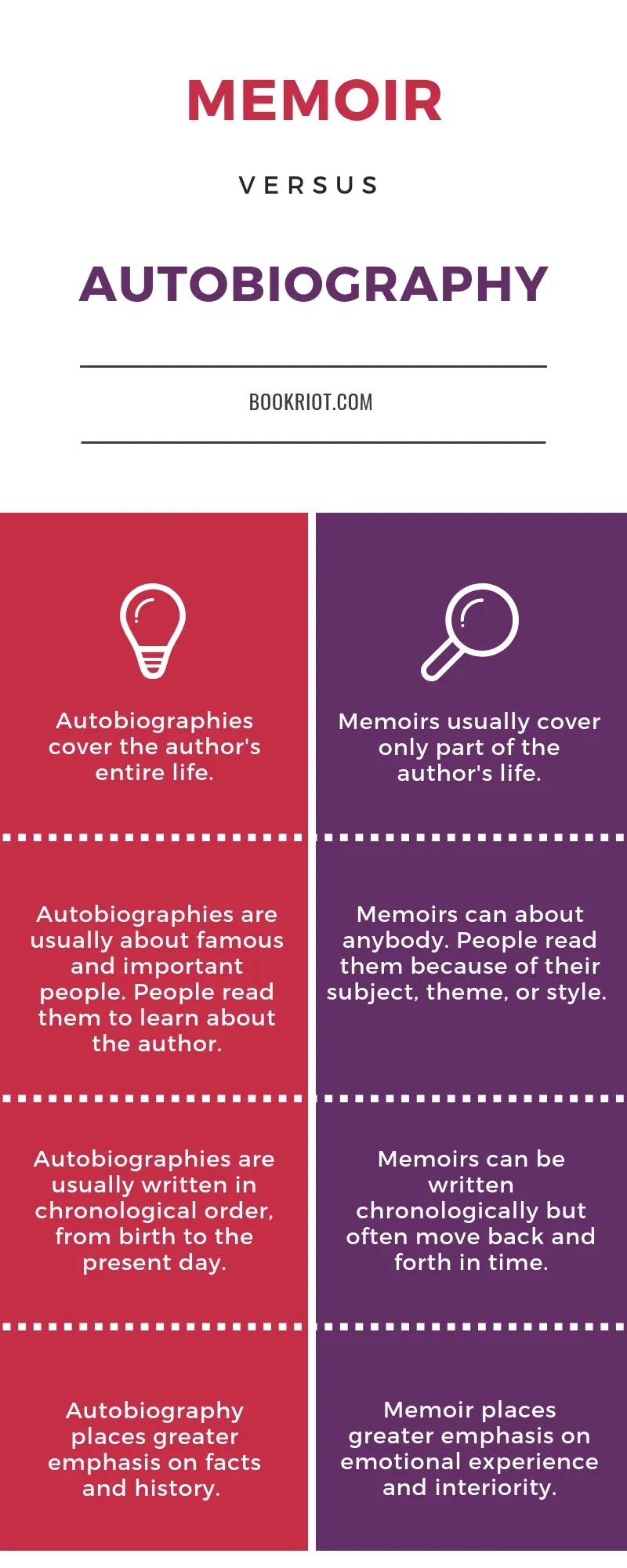
Memoir vs. Autobiography Basics
1. autobiography usually covers the author’s entire life up to the point of writing, while memoir focuses only on a part of the author’s life..
There are going to be exceptions to every point on this list, but generally speaking, autobiography aims to be comprehensive, while memoir does not. Autobiographers set out to tell the story of their life, and while some parts will get more detail than others, they usually cover most or all of it.
Memoirists will often choose a particularly important or interesting part of their life to write about and ignore or briefly summarize the rest. They will sometimes choose a theme or subject and tell stories from different parts of their life that illustrate its significance to them.
As examples, The Autobiography of Malcolm X covers the major points of Malcolm X’s life, while Abandon Me: A Memoir by Melissa Febos focuses mainly on two significant relationships (with her father and with a lover).
2. In autobiography, authors usually tell their life stories because they are famous and important. A memoirist can be anybody, famous or not.
Long Walk to Freedom, Nelson Mandela’s autobiography, is a good example: he was an important person whose personal account of his life matters because of who he was and everything he accomplished.
For memoir, Mary Karr’s The Liar’s Club is not the story of a famous person; instead, it’s an account of a regular person’s childhood. Her childhood was especially eventful, but it doesn’t stand out because she was famous. Memoirists do sometimes become famous, but usually it’s for writing memoirs.
3. People read autobiographies because they want to know about a particular (probably famous) person. They read memoirs because they are interested in a certain subject or story or they are drawn to the writer’s style or voice.
The Autobiography of Benjamin Franklin is a book people might read because they want to learn about an important historical figure. They may also have heard it’s exceptionally interesting and well-written, but the desire to learn about a person who shaped U.S. history is probably the main motivation.
On the other hand, readers may pick up Roxane Gay’s memoir Hunger: A Memoir of (My) Body because they want to read about food, weight, and body image. Or they may admire Gay’s essays available online and want to explore more of her work. The motivation here is more about subject and style and less about the writer as a historical or cultural figure.
4. Autobiographies tend to be written in chronological order, while memoirs often move back and forth in time.
When readers pick up an autobiography, they expect it to begin with the author’s childhood (or perhaps even with the author’s parents’ lives), to proceed through young adulthood and middle age, through to the time of the writing. Olaudah Equiano’s The Interesting Narrative of the Life of Olaudah Equiano does just that, opening with his childhood and proceeding in a straightforward manner through time.
Memoirs, on the other hand, can be much looser in their treatment of time. Heart Berries by Terese Marie Mailhot shifts back and forth in time and has a structure more focused on theme than chronology. We finish the book with a sense of the major events of Mailhot’s life, but not necessarily their order.
5. Autobiography places greater emphasis on facts and how the writer fits into the historical record, while memoir emphasizes personal experience and interiority.
Autobiographies are sometimes thought of as a form of history and they are used as source material for historians. While it’s possible for both autobiographers and memoirists to get their facts wrong, the stakes are higher for the autobiographer who made history or witnessed historically-important events.
Frederick Douglass’s Narrative of the Life of Frederick Douglass is important in part because of Douglass’s work as an orator, statesman, and abolitionist. His historical stature adds to the significance of his book.
The facts matter in memoir, but it’s understood that memoirists select and shape the facts of their lives to explore their chosen theme. Darin Strauss’s Half a Life: A Memoir is rooted in a real-life event—a car crash in which Strauss accidentally hit and killed a classmate—but it focuses on the emotional aftereffects of this event rather than the historical context of Strauss’s life.
And there you have it! Again, these distinctions are loose ones, but hopefully they have helped you understand the different connotations of the two words.
Want to read more about memoir? Check out this list of 100 must-read memoirs , this discussion of how to define the term “memoir,” and this post on short memoirs .

You Might Also Like

- Good Writing Habits
- Inspiration
- Writing Groups, Tools, & Software
- Writing Tips
- Book Design & Formatting
- Book Distribution
- Printed Books 101
- Publishing Industry News
- Self-Publishing
- Book Launch
- Book Promotion & Publicity
- Online Book Marketing
- BookBaby.com
- Publish My Book
- Free Catalog

Estimated reading time: 6 minutes
Memoir, biography, autobiography, oh my! All these book genres have a focus on someone’s life and are written in completely factual ways. The adage that truth is stranger than fiction rings true when we delve into the lives of significant people or people who have endured something significant.
Table of Contents: • What is a biography? • What is an autobiography? • What is a memoir? • Differences between a memoir vs. autobiography vs. biography • Key features of a memoir • Key features of an autobiography • Key features of biography • BookBaby can help you self-publish
It’s easy to confuse the style and tone of these three different nonfiction books. Each has different requirements to qualify as a memoir vs. biography vs. autobiography.
What is a biography?
A biography is a novel written about someone’s entire life, typically in chronological order, written by someone other than the subject.
The topic of a biography will often be someone who is an important historical figure, a celebrity, or a person who has had significant cultural or societal impact.
One excellent example of a biography is The Immortal Life of Henrietta Lacks, by Rebecca Skloot. This biography describes how a black woman’s body was used to advance modern medicine. Henrietta Lacks’ cancer cells were taken — without her knowledge — for medical testing and has served as the blueprint for cancer treatment.
This real-life tale reveals a hidden narrative in modern medicine and points to a history of racism in the field. The story was written and recounted by Rebecca Skloot, an American writer who has contributed to many scientific publications.
What is an autobiography?
While a biography is a written account of someone else’s life, an autobiography is written by the person who is the subject of the book.
The Autobiography of Malcolm X: As Told to Alex Haley details the life of civil rights activist Malcolm X. Written by Malcolm, this autobiography features a collaboration with author and journalist Alex Haley and was released nine months after Malcolm X’s assassination.
Reading an autobiography can be more powerful and intriguing than a biography, partly because the words and perspectives are unique to the subject. There are details and insights that only the person who is the subject can convey — unfiltered by the lens of someone else. As they recount the important events of their lives from start to finish, we get to experience it in their own words.
What is a memoir?
While a biography or autobiography usually focuses on impactful historical figures or someone who had significant cultural impact, it’s not only famous people who can write about their lives. While some lesser-known figures will be the subjects of those books, memoirs allow someone who has led a less “public” life to write about their experiences and the lessons they’ve learned.
A memoir covers a specific period of the subject’s life, often detailing a unique personal experience and how the subject was transformed by it. Unlike autobiographies and biography, a memoir does not present someone’s life from the beginning to the present (or the end). It gives us a unique look into a specific period that was transformational to the person writing it.
More than the other real-life accounts, memoir proves over and over how ordinary people can have great impact and insight writing about the trials they overcome.
Wild, by Cheryl Strayed, is a compelling example of a memoir vs. autobiography. This is a story about a young woman who, after losing her mother to cancer and getting divorced (among other travails), embarks on a 1,100-mile hike on the Pacific Crest trail — alone.
Having no previous professional hiking experience, her expedition mirrors the inner trials and tribulations she overcame before surviving in the wild on this extraordinary hike.
Men We Reaped: A Memoir, by Jesmyn Ward, is another notable memoir. The story focuses on the death of five black men in Ward’s life between the years 2000–2004. Ward details the lives of these young black men who die early in her life and speaks to how young black men’s lives are cut short far too often. She traces the impact of these losses through her own family history and writes of the complexities of love and grief.
Differences between a memoir vs. autobiography vs. biography
Key features of a memoir.
As a rule, a memoir is pulled from the writer’s real-life experience. When a person picks up a memoir, they are expecting a story that truly happened to the author. That said, a memoir isn’t just recalling events and re-told to the reader. A satisfying memoir touches on universal themes about the life story uncovered by the events that happened to the writer.
Of course, memoirs aren’t here to preach a specific message or serve as a “how-to” guide to overcoming a particular experience — in the best memoirs, the author shows their emotional truth as opposed to the truth.
Memoirs do not have to be recounted in chronological order, and there is room for creative freedom. You can’t make up important events, but there is some wiggle room around specific details in dialogue and other specifics.
Notably, a memoir also doesn’t recount the author’s whole life, but details a pivotal part of it that holds significance based on the author’s transformation. It is the author’s recollection of memories and their perspective on it.
Key features of an autobiography
An autobiography is a life account written by the subject themself. An autobiography is a recounting of the writer’s entire life from childhood up until the age they are at the time of the writing, accurately detailing significant accomplishments and telling the story of the making of who the writer is and the events that shaped their life. All of the contents of an autobiography must be 100 percent true.
Key features of biography
A biography is an account of a person’s life story written by someone other than the subject. It is the author’s rendition of what the author knows about the person’s life, sometimes personally and certainly by collecting and researching information about their life. It is typically focused on someone of cultural or historical significance.
BookBaby can help you self-publish
Whether you’re embarking on an autobiography, a biography, or a memoir, drawing universal truths from the lives of real people is a rewarding task. Of course, as a writer, once you have completed the first draft of your manuscript, it’s important to have an editor work on your manuscript to ensure it reads clearly to your reader.
BookBaby offers three types of book editing services that will be good to use at different stages of your editing process.
Line editing is our most popular editing service for first-time authors. Our line editors will review your manuscript and check for style, structure, word choice and syntax. You will also receive feedback regarding pacing, advice for writing flow, and an audit on tone and style.
Copy editing might be the best option for nonfiction authors writing a biography, autobiography, or memoir. Copy editing is a “word-by-word” edit, focusing on spelling and punctuation, along with an intensive grammar audit.
Proofreading is the last and final stage. It includes a basic check for grammar, spelling, and any lingering typos before publishing.
When your manuscript is proofed and ready, BookBaby offers print-on-demand services and distribution of your book, so you can get your work in the hands of readers. Call one of our publishing specialists to get started at 1-877-961-6878 or visit us at www.bookbaby.com .
Related Posts What is Copy Editing and Does Your Book Need It? Finding Your Story In Your Memoir Sensory Language Makes Your Writing Come Alive What To Include In Your Memoir To Create A Powerful Reading Experience The Art Of The Memoir
LEAVE A REPLY Cancel reply
Save my name, email, and website in this browser for the next time I comment.
This site uses Akismet to reduce spam. Learn how your comment data is processed .
Recent Articles

How to Write a Book With No Experience in 10 Steps

How to Add Research for Your Next Book Project

How to Publish a Cookbook or Recipe Book

How to Write a Nonfiction Book in 7 Steps
© BookBaby Blog. All Rights Reserved.
- Book Series
- Recommendations

Autobiography vs. Biography vs. Memoir: Understanding the Differences
Autobiography, biography, and memoir are three genres of literature that share similarities but are also distinct from one another. While they tell stories about people’s lives, they differ in scope, perspective, and purpose. Understanding the differences between these genres is vital for readers, writers, and researchers alike.
So, what exactly makes them different from each other?
In this article, we’ll compare autobiography vs. biography vs. memoir, discover the definitions of each, and see the best examples of each genre.
But before we dive deep into the topic and learn about these three book genres, let’s see a quick overview of what an autobiography, a biography, and a memoir are for those in a hurry!
An autobiography is a book written by the person whose life is being described. It is a first-person narrative that covers the author’s entire life, from birth to the present day. On the other hand, a biography is a book written about a person’s life by someone else. It is a third-person narrative that covers the subject’s life in a factual and objective manner.
Meanwhile, a memoir is similar to an autobiography, but instead of describing the person’s entire life, it focuses on a particular event or a specific period and delves deeper into the author’s state of mind at the time.
Now that you have a rough idea of what an autobiography, a biography, and a memoir mean, let’s move ahead and explore all these book genres in much more detail.
What is an Autobiography?
An autobiography is a book written by an individual about their own life. It covers the author’s experiences, thoughts, and feelings throughout their life.
Autobiographies are typically written in the first person and are subjective in nature. They can cover many topics, including personal experiences, family history, career achievements, and more.
An autobiography aims to provide readers with an in-depth look into the author’s life. It can be a way for the author to share their story, inspire others, or leave a legacy. Autobiographies can also be used as a form of therapy, allowing the author to reflect on their life experiences and gain a deeper understanding of themselves.
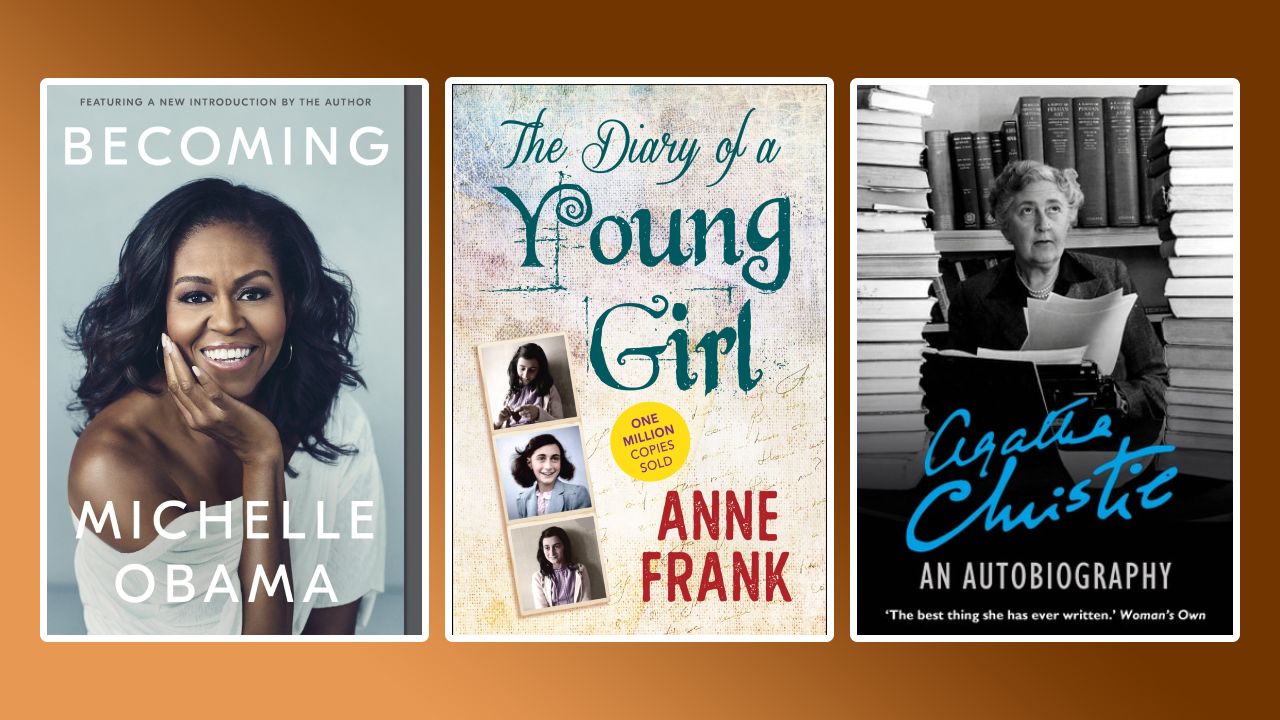
Autobiographies can be both subjective and objective. While they are written from the author’s point of view, they can still provide an accurate account of events. However, it is essential to note that autobiographies are not always completely accurate, as memories can be flawed and biased.
Autobiographies can cover a wide range of events and information. Some may focus on a specific period or event in the author’s life, while others may cover their entire life from birth to the present day.
Autobiographies are often written by famous people, such as politicians, athletes, and celebrities, who want to tell their life stories in their own words. They can be insightful and revealing, but they can also be self-serving and biased.
Here are a few famous autobiographies:
- “The Diary of a Young Girl” by Anne Frank
- “Born a Crime” by Trevor Noah
- “Becoming” by Michelle Obama
- “An Autobiography” by Agatha Christie
- “The Autobiography of Malcolm X” by Malcolm X
- “Long Walk to Freedom” by Nelson Mandela
What is a Biography?
A biography is a non-fictional account of someone’s life written by another person. It provides an objective understanding of the person’s life, covering various aspects such as their upbringing, education, career, achievements, and personal life.
The author of a biography is not the subject, and their interpretation of the subject’s life is not expected to be included in the text.
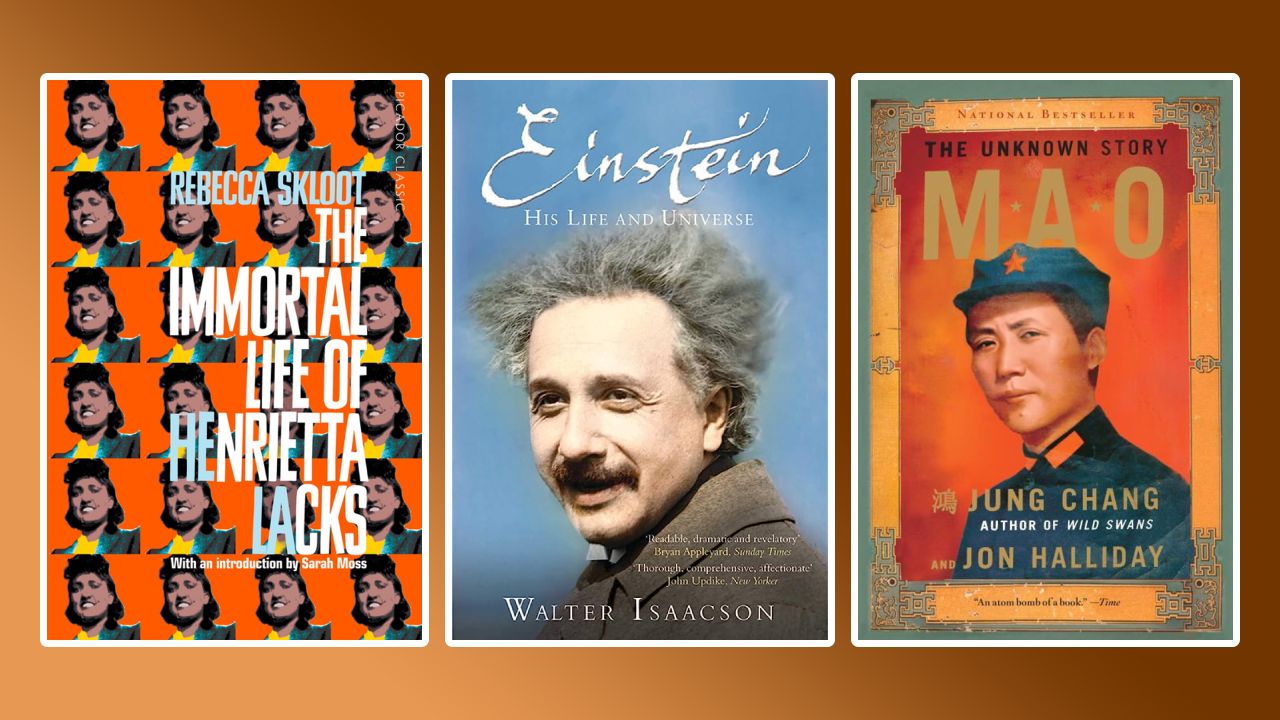
Biographies can be written about anyone, from historical figures to ordinary people who have made a significant impact on society. They are often researched and written by scholars, journalists, and other experts who want to provide a comprehensive and accurate account of a person’s life. And so, they are generally considered to be objective, as the author is expected to present a factual account of the subject’s life without any personal bias.
Biographies cover various events and information about the subject’s life. They may include details about the subject’s childhood, education, family life, career, and personal relationships. Biographies may also provide insights into the subject’s personality, beliefs, and values.
Here are some popular biographies and their authors:
- “Steve Jobs” by Walter Isaacson
- “A Beautiful Mind” by Sylvia Nasar
- “Unbroken” by Laura Hillenbrand
- “Mao: The Unknown Story” by Jung Chang
- “The Immortal Life of Henrietta Lacks” by Rebecca Skloot
- “Einstein: His Life and Universe” by Walter Isaacson
What is a Memoir?
A memoir is a form of autobiographical writing that focuses on a specific period, theme, or series of events in the author’s life. It is much similar to an autobiography; the only difference is that an autobiography covers the author’s entire life while the memoir is focused on a particular period or event.
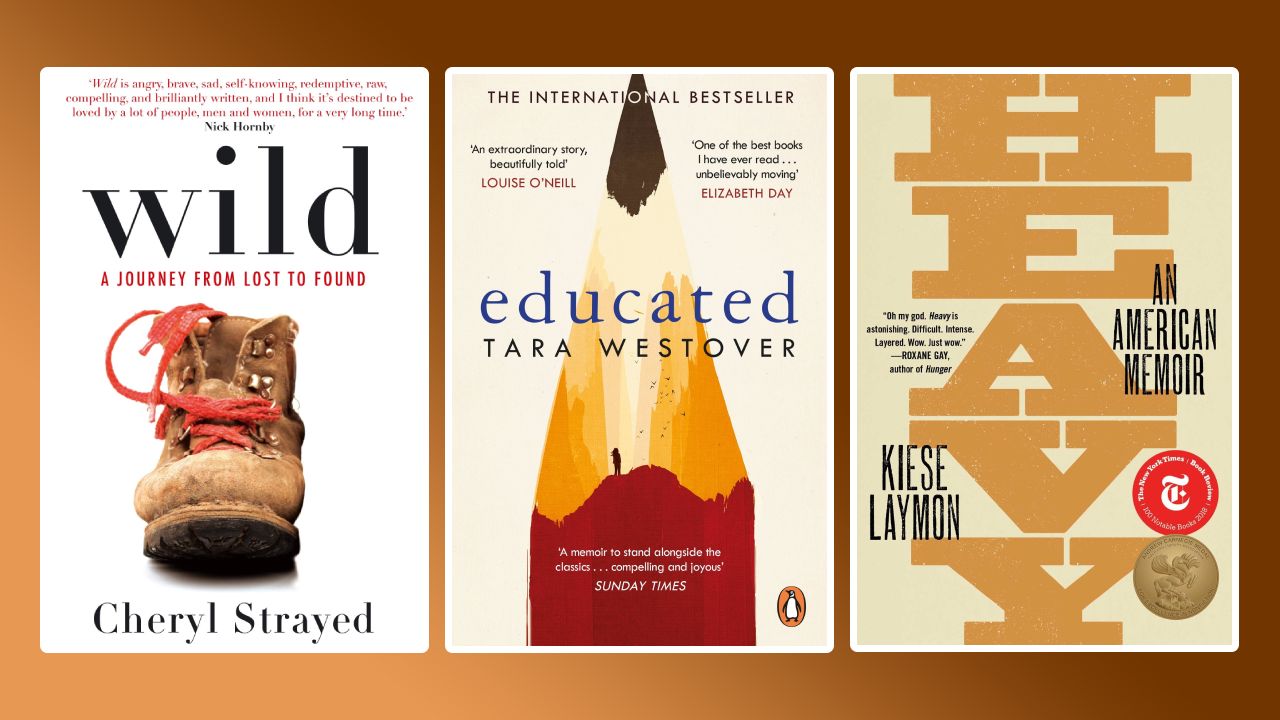
Memoirs are personal narratives that typically include the author’s reflections, emotions, and thoughts about their experiences. They are often considered to be subjective, as they are based on the author’s memories and perceptions of events, rather than objective facts.
To be considered a memoir, a book must be a factual account of the author’s life, but it does not have to be a comprehensive chronicle of their entire life. Instead, it should provide insight into a particular aspect of their life, such as their childhood, career, or personal relationships.
Here are some popular memoirs that have resonated with readers:
- “Educated” by Tara Westover
- “The Glass Castle” by Jeannette Walls
- “Heavy: An American Memoir” by Kiese Laymon
- “Wild: From Lost to Found on the Pacific Crest Trail” by Cheryl Strayed
- “Running with Scissors” by Augusten Burroughs
- “Night” by Elie Wiesel
These memoirs are just a few examples of the wide range of experiences and themes that can be explored through this genre of writing.
Autobiography vs. Biography vs. Memoir – Key Differences:
When it comes to writing about someone’s life, there are three main options: autobiography, biography, and memoir. While they all share similarities, there are some key differences between them.
Autobiography
An autobiography is a factual and historical account of one’s entire life written by the person themselves. It is usually written in the first person and covers the author’s life from beginning to end. Although autobiographies are often written by famous people, they can be written by anyone.
A biography is the story of someone’s life written by someone else. It is usually written in the third person and covers the subject’s life from birth to death.
A memoir is a nonfiction narrative in which the author shares their memories from a specific time period or reflects upon a string of themed occurrences throughout their life. Memoirs tend to focus on a particular aspect of the author’s life rather than their entire life story.
Comparison Chart
Here is a comparison chart highlighting the key differences between autobiography, biography, and memoir:
| Autobiography | Biography | Memoir | |
|---|---|---|---|
| Subject | Other | Subject | |
| First Person | Third Person | First Person | |
| Entire Life | Entire Life | Specific Time Period or Theme | |
| Entire Life | Subject’s Life | Specific Aspect of Author’s Life | |
| Tell Life Story | Inform and Entertain | Reflect on Specific Memories or Themes |
After examining the similarities and differences between autobiography, biography, and memoir, it is clear that each genre has its unique characteristics. While all three genres involve storytelling, they differ in their scope, focus, and style.
One notable difference between these genres is the level of objectivity. Biographies are often the most objective, as they are written by a third-party author who is not emotionally invested in the subject. In contrast, memoirs and autobiographies can be highly subjective, as they are written from the author’s perspective and often include their emotions and opinions.
Another difference is the audience. Autobiographies and biographies are usually intended for a broader audience, while memoirs are often more personal and may only appeal to a specific group of readers.
Overall, each genre has its strengths and weaknesses. It is up to the reader to decide which genre best suits their interests and preferences.
Also Read: What is the Fantasy Genre?
Related Posts
When did game of thrones books come out a timeline of release dates, when did twilight books come out a brief history of the twilight saga, when did harry potter books come out a timeline of the release dates, what is fantasy genre popular fantasy subgenres explained, hardcover vs paperback: which book format is better in 2023, paperbacks vs mass market paperbacks – how are they different.
Save my name, email, and website in this browser for the next time I comment.
Type above and press Enter to search. Press Esc to cancel.

- Book Writing
- Fiction Writing
- eBook Writing
- Biography Writing
- Autobiography Writing
- Speech Writing
- Screenwriting
- Memoir Writing
- Book Editing
- Book Proofreading
- Children’s Book Editing
- eBook Editing
- Press Release Writing
- Business Plan Writing
- Website Content Writing
- LinkedIn Profile Writing
- White Paper Writing
- Wikipedia Writing
Biography vs autobiography vs memoir: Which Genre Best Tells Your Story?
As a writer, it’s essential to choose the right genre to tell your story effectively. However, distinguishing between memoir, autobiography, and biography can be confusing. In this article, we’ll clarify the core differences between these genres and provide insights to help you choose the one that best fits your unique story. Whether you’re interested in exploring your own experiences or delving into the lives of others, understanding the difference between a memoir and a biography and autobiography is critical to crafting a compelling narrative. So let’s get started and discover which genre will best tell your story.
The Power of Biographies: Discovering Lives and Learning Lessons
A biography is a personal story narrated from real life. The biographies come in different sub-genres, but what they have in common is the factual loyalty. Biographies provide an in-depth look into the lives of individuals, whether they’re still alive or historical figures. For a collection of famous biographies, you might want to explore Biography.com .
Professional bio writers usually conduct a great deal of research. They can describe the life events of someone still alive or a famous person who lived years ago. The author focuses his attention significantly on childhood, relationships, and ups and downs to create a complete picture of a person’s life.
The distinct feature of the story is the writer’s presence. That’s where you don’t align memoir vs biography: while people write memoirs alone, biographies require professional writers.
The main types of biographies include:
- Contemporary biography: a story of a person who’s alive and usually at the peak of their success. It can be about well-known entrepreneurs, musicians, or politicians. It can also include the people who are especially valuable at the moment or have done something great that you have to commemorate.
The examples are: “His Way: The Unauthorized Biography of Frank Sinatra” (written by Kitty Kelley) and “Robin” (Dave Itzkoff’s intimate look at the life and career of Robin Williams).
- Historical biography: provides in-depth information on the life of historical figures or people who died without the recognition they deserved.
The examples are: “Alexander Hamilton” (an epic 800+ page biography created by Ron Chernow) and “The Immortal Life of Henrietta Lacks” (written by Rebecca Skloot).
- Group biography: the authors apply this type of biography quite rarely. One of the first examples is “A General History of the Pirates,” narrated by Captain Charles Johnson in 1724. One of the latest group biographies includes an account of the life stories of famous British royals, “HRH: So Many Thoughts on Royal Style,” written by Elizabeth Holmes.
Autobiographies: Understanding the Genre, Types, and Significance
An autobiography is someone else’s story that doesn’t involve a third party. A memoir writing service puts it differently because autobiography is the first person’s account of events.
Autobiographies have been vital throughout history. They provide invaluable stories and thoughts, giving the audience an accurate impression of historical leaders and the value they represent. Also, they allow individuals to tell their own stories in their own words. For examples of famous autobiographies that have captivated readers, check out this list on Goodreads .
The main difference between autobiography and biography is that the last one provides a person’s story written by someone else. The peculiar advantage that autobiographies provide is decreasing the number of discrepancies or mistakes. Hiring cheap ghostwriters for hire may be incorrect in describing significant events.
The types of autobiography include:
- Traditional: a complete story narrated from the first person, discussing all significant events from birth, throughout childhood, and up to the present time. It’s a challenging genre since a life story should be captivating and exciting to engage the reader.
- Overcoming adversity: on the contrary, many people don’t have as shiny lives. Some survived a series of challenging circumstances, such as assaults, murders, or other life-threatening situations. Sharing the story of the “survivor” might heal people undergoing a similar journey.
- Intellectual: focus on critical events or experiences that have changed someone’s perspective on life. Prominent examples include the “Autobiography” of the philosopher John Stuart Mill and “The Education of Henry Adams.”
- Fictionalized is a story that uses made-up characters to represent an author’s experience. This autobiography reflects on actual events vs. serving as an accurate retelling of what happened. Some of the interesting examples are “The Way of All Flesh” (by Samuel Butler) and “A Portrait of the Artist as a Young Man” (by James Joice).
Memoir vs autobiography: what’s the catch?
If you’re wondering what does a ghostwriter do when writing a memoir, let’s explore its main features.
Memoir highlights the essential part of someone’s life. It can describe the critical historical period or a breakdown, focusing on the events that led to the collapse. That’s where memoirs vs autobiography differ: the first ones only focus on particular excerpts instead of telling the whole story.
- A memoir is a factual story in which the author reflects on a series of related events from their life or recounts memories from a particular period.
- An autobiography is a chronological description of a person’s life.
Although the memoir can be subjective, it must lean on facts. The authors choose a pivotal moment they’d like to shed light on and recreate the event using storytelling tools.
There’s not a specific number of memoirs in a professional book writing history. Nevertheless, we will explore the most prominent types of memoirs to let you dive into the industry:
- Transformation memoirs: tell about the most significant challenges authors These stories lead with the topic of redemption, whether you achieved it or you’re trying to gain it.
The examples are “Here We Are: American Dreams, American Nightmares” (by Aarti Namdev Shahani), “Educated” (by Tara Westover), and “Finding Freedom” (by Erin French).
- Confessional memoirs: reveal the painful or dirty secrets about authors or their families and how the particular series of events has affected them.
The examples are: “Confessions” (by Jean-Jacques Rousseau) and “Running with Scissors” (by Augusten Burroughs).
- Professional or celebrity memoirs: describe the road to fame and success. Famous people often think about how to find a ghost writer to talk about their lives and significant events in a more professional tone.
The examples are: “I Am Malala” (by Malala Yousafzai) and “Just Kids” (by Patti Smith).
- Travel memoirs: focus on exciting adventures that happen while traveling. These memoirs are often the most pleasant, allowing readers to escape everyday reality.
The examples are “Wild” (by Cheryl Strayed) and “A Year in Provence” (by Peter Mayle).
Autobiography vs biography vs memoir: where’s your match?
You don’t need to be a writing professional to comprehend the difference between memoir and autobiography and biography. Let’s take a look at some of the key points to consider.
|
|
|
Subjective | Objective | Subjective |
A story of one’s own life | An account of another person’s life | An account of specific experience or event |
The person presents facts as they were experienced, from one point of view | The author collects information from the subject, their families, friends, and co-workers | Presents facts as the person described them, without third party interfering |
Explains the motivation behind certain decisions | Establishes a context | Reflects the emotional experience |
The person writes it later in life | The author can write it anytime, including after the death of the subject | The author can write it anytime |
Provides access to one’s feelings | Doesn’t have access to personal thoughts and feelings | Provides access to emotional reactions and reflections |
The Bottom Line
Writing a book about your life is a challenging process. It requires lots of patience and a great deal of memory to recall the most significant events. Meanwhile, it allows you to look at your life and experiences from a whole new perspective.
If you need any help with writing a biography vs autobiography vs memoir, Penfellow will gladly assist! Our professional writers have years of experience completing similar tasks and will do the job for you. We will ensure the final paper meets your requirements and writing standards. Get in touch with us today to get your biography done in no time!
About Ryan Bronson
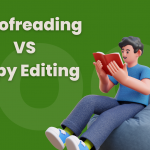
Proofreading VS Copy Editing: Choose and Master Your Approach
How to write a children’s picture book that evokes emotions and enchants young readers.
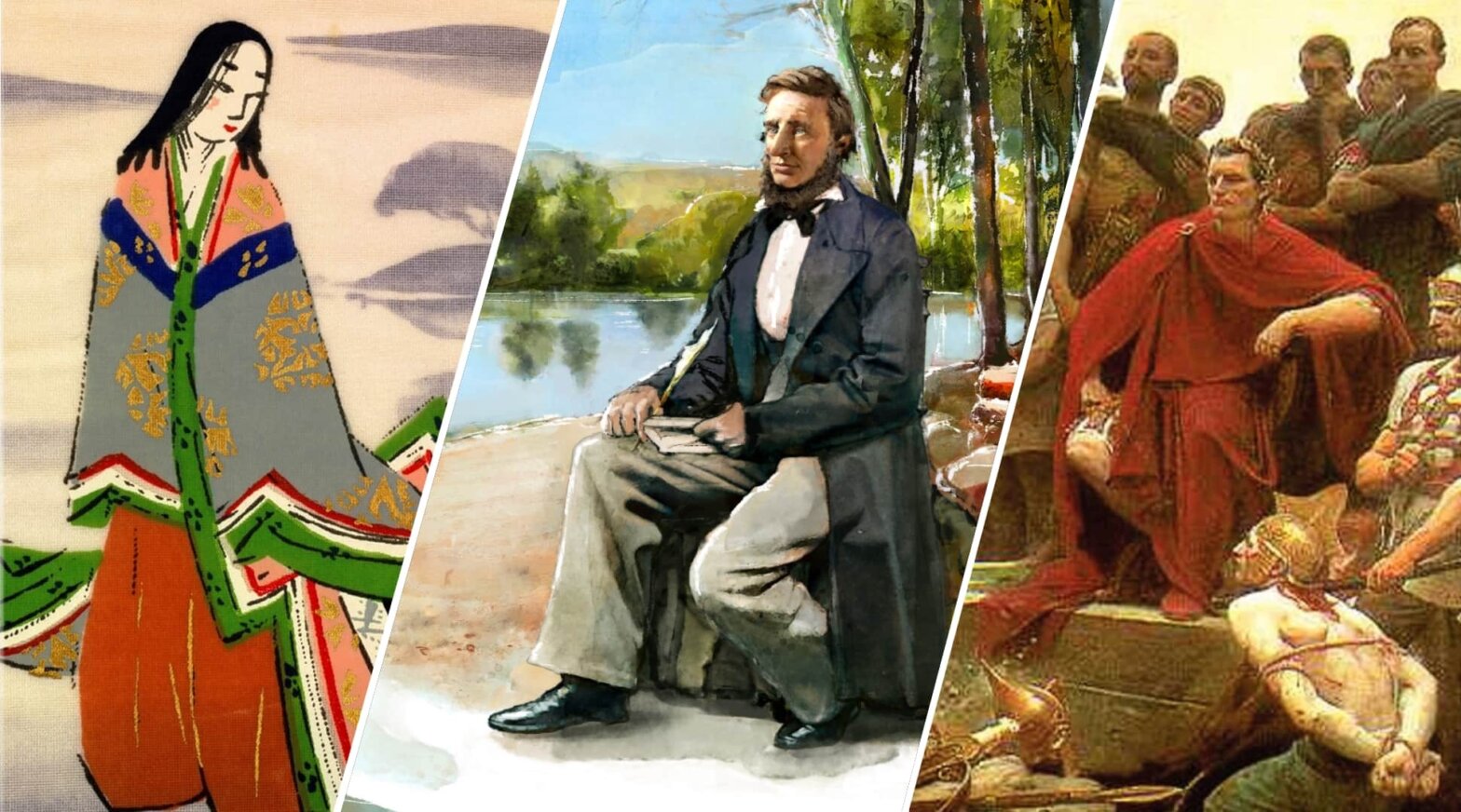
- Scriptwriting
What is a Memoir — Definition, Examples in Literature & Film
M ost movies tell a story with a beginning, middle, and end. Many of those narrative features tell the story of a single individual that can span a certain amount of time, ranging from a few days to a few decades. Some of those focused narrative movies are also memoirs, which can include original and adapted screenplays. But what is a memoir and how can you identify one?
Memoir Definition
Let's define memoir.
Autobiographies are fairly common and known quantities in the world of literature. Memoirs are, too, but they are not as broad as autobiographies tend to be. This is key to understanding a memoir vs autobiography and how they tell their stories, which we go over below in our memoir definition.
MEMOIR DEFINITION
What is a memoir.
A memoir is a non-fiction story set in the author’s past during a specific period of their life. The name “memoir” comes from “memorie/memoria/memory,” as memoirs are essentially reminiscences of the author. A memoir is told completely through the author’s point of view. This means that facts can be embellished, with an emphasis on feelings and emotions.
Memoir Characteristics:
- Narrative tales set in a character’s past
- Stories set during a short period of time (as opposed to a lifetime)
- A greater emphasis on feelings, emotions, and perspectives versus factual storytelling
Memoir Meaning
History with examples.
Writing memoirs used to be something only a privileged few were able to indulge in, as they had the time and money to sit around and reminisce. Julius Caesar’s Commentaries on the Gallic Wars and Commentaries on the Civil War are two very early memoir examples, with Caesar writing about the two respective wars, how they went, and his role in them.
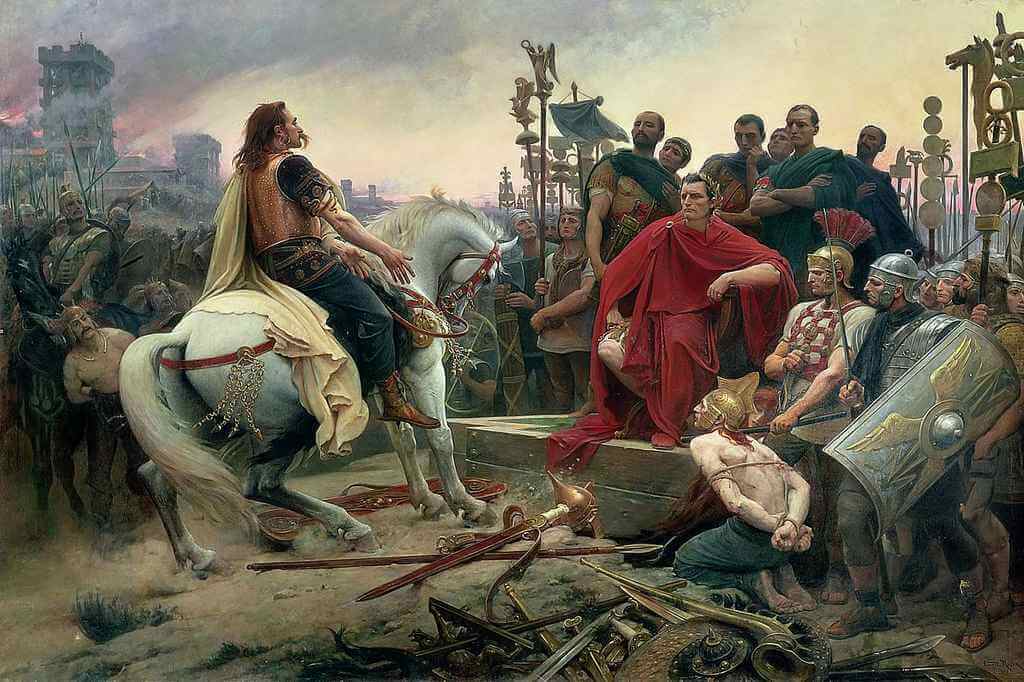
While serving as memoirs, they also serve as historical records, which is something many other memoirs end up being. Thus, in these early examples, we can see both the personal and historical reasons for jotting down one’s specific memories.
As time went on, other people, be them important politicians or simply chroniclers of their era, were writing memoirs. Some of these included Sarashina Nikki of the Japanese Heian period (8th to 12th century); there were also several European memoir examples from the Middle Ages to the Renaissance .
The 18th and 19th centuries brought us closer to what we could consider more modern examples of memoirs. While these centuries were full of memoirs written by privileged politicians or aristocrats, there was at least one that broke the mold a bit.
Henry David Thoreau’s Walden is one of the most popular and well-known memoir examples in literature. Focusing on the two years, two months, and two days the author spent in a cabin, the memoir has Thoreau cover many subjects. These include living on your own to identifying plant life around him, among many other things.
You can learn more about who Thoreau was in the video below.
What is a memoir • Henry David Thoreau's memoir meaning
As access to writing materials and typing increased, and as the world became a bit more modern, more “regular” memoirs started to pop up. This was especially true during some of our darkest times, specifically the two world wars. From these great wars came memoirs from soldiers, victims, and survivors, including those in the trenches of World War I or in the concentration camps of World War II.
Closer to the 21st century, memoirs became even bigger as normal everyday people began jotting down their memories. In many cases, these memories were to preserve the history of a person or their family, as they would otherwise be lost without being written down.
In other cases, memoirs have served as forms of expression from the individual writers, detailing events in their life and the impact it had.
Related Posts
- What is an Adapted Screenplay? →
- The Best Book-to-Film Adaptations →
- How to Develop and Write a Script Adaptation →
Memoir Examples
Memoir vs. autobiography.
Reading the memoir definition, you may be wondering what exactly makes it different from an autobiography. Both are just chatting about yourself, right?
Both forms may indeed be chatting about oneself, but there is a difference between a memoir and an autobiography. A memoir is a look at a specific period from the writer’s life, or a sequence of specific periods that have thematic links. An autobiography, meanwhile, is the writer’s entire life (up until writing, of course).
Autobiographies also tend to be more rigorously fact-checked, while a memoir can be a bit more fast and loose with the facts as the writer weaves a story.
Of course, there are exceptions to this rule; sometimes an autobiography has some elements that aren’t totally truthful, but that’s usually frowned upon.
While they’re distinct in definition, the two terms occasionally overlap since their qualifications are a bit subjective.
Types of Memoirs
Because “memoir” is a pretty general term, there are many different ways the writing style can manifest. Over the years, a few categories for the genre have cropped up, though there are various schools of thought on the subject.

Personal Memoir
When you think of a memoir, this is probably the type that comes to mind. In this memoir, an author tackles a formative, personal experience from their life.
“I was small-boned and skinny, but more than able to make up for that with sheer meanness.”
— Mary Karr, The Liar's Club
There’s no limit to what this experience could be, but examples may be meeting a first love, enduring an illness, or navigating a relationship with a parent.
Portrait Memoir
With a portrait memoir, the subject is someone other than the author. Of course, the memoir is still through the eyes of the author, and they probably play a big role in the narrative, but the real focus lies with someone else.
“My father had lost most of the sight in his right eye by the time he’d reached eighty-six, but otherwise he seemed in phenomenal health for a man his age when he came down with what the Florida doctor diagnosed, incorrectly, as Bell’s palsy…”
— Philip Roth, Patrimony
This might be a parent (the amount of memoirs about parents, particularly complicated dads, could fill the Pacific Ocean), a best friend, a sibling, a teacher — really anyone who the author knows intimately. The film Aftersun loosely falls into the Complicated Dad subcategory of the portrait memoir.
Political Memoirs
This memoir is usually written by, you guessed it, politicians. It can be a personal memoir in form, but often with the larger goal of ingratiating themselves to the reader to get their vote or support their platform.
“Of all the rooms and halls and landmarks that make up the White House and its grounds, it was the West Colonnade that I loved best.”
— Barack Obama, A Promised Land
Political memoirs can also be written by people who aren’t politicians but are trying to further a political goal, like an activist. Some political memoir examples: Che Guevara's The Motorcycle Diaries , Michelle Obama’s Becoming , or Tony Blair’s A Journey .
Public Memoir
This type of memoir is a bit similar to the political memoir because it’s written by a person who’s already famous. But the public memoir usually doesn’t have a political ax to grind (at least, that’s not a requirement), it’s just a memoir by someone who’s well-known.
“Plainly, due to my high and solitary place in the world—am I not the Living Buddha (0r is that Richard Gere?)—and to my cold nature and to my refusal to conform to warm mature family values, I am doomed to be the eternal outsider…”
— Gore Vidal, Palimpsest
This celebrity will write about being famous and hanging out with other famous people, and they’ll make the GDP of a small country in book sales.
Travel Memoir
People like traveling, but it’s expensive and usually exhausting. So sometimes, we prefer to read about someone else who’s spending the money and traveling around the world.
“When you’re traveling in India—especially through holy sites and Ashrams—you see a lot of people wearing beads around their necks.”
— Elizabeth Gilbert, Eat, Pray, Love
A travel memoir can take a lot of different forms, but there’s one constant: the writer is moving around.
Writing Memoirs
How to write a memoir.
If these categories didn’t already make it clear, there’s no one way to write a memoir. It can be a straight-forward narrative or an avant-garde collection of scenes. But, hey, a few helpful tips can’t hurt.
You can learn a bit more about writing memoirs in the video below.
How to write a memoir
Know the “why”.
The most important question to ask yourself when you’re about to write the next great memoir is, “Why will people care about this?” If you don’t have a good answer, you may be writing a journal entry — which is totally fine; journaling is great and important in its own right.
But with a memoir, it’s crucial to have a greater purpose. This personal story may mean a lot to you (and if it doesn't, why are you writing it down at all?). But if someone doesn’t know you, why should they care that your sophomore year girlfriend broke up with you because she didn’t believe in your dream of becoming the premiere soft serve ice cream provider of Illinois?
There are many reasons a reader might care. Maybe your story in a larger sense is about young love and big dreams — we can all relate to that. Maybe the story is filled with drama: she broke up with you by pushing you into a vat of soft serve extract, and you spent months trying to get the solution out of your hair. Or maybe you’re the founder of Dairy Queen, and this is a glimpse into how it all started.
Beginning, Middle, End
It may seem obvious, but this fundamental rule of storytelling can be tricky when writing a memoir. The nature of a memoir means that there is going to be a story before and after the memoir ends.
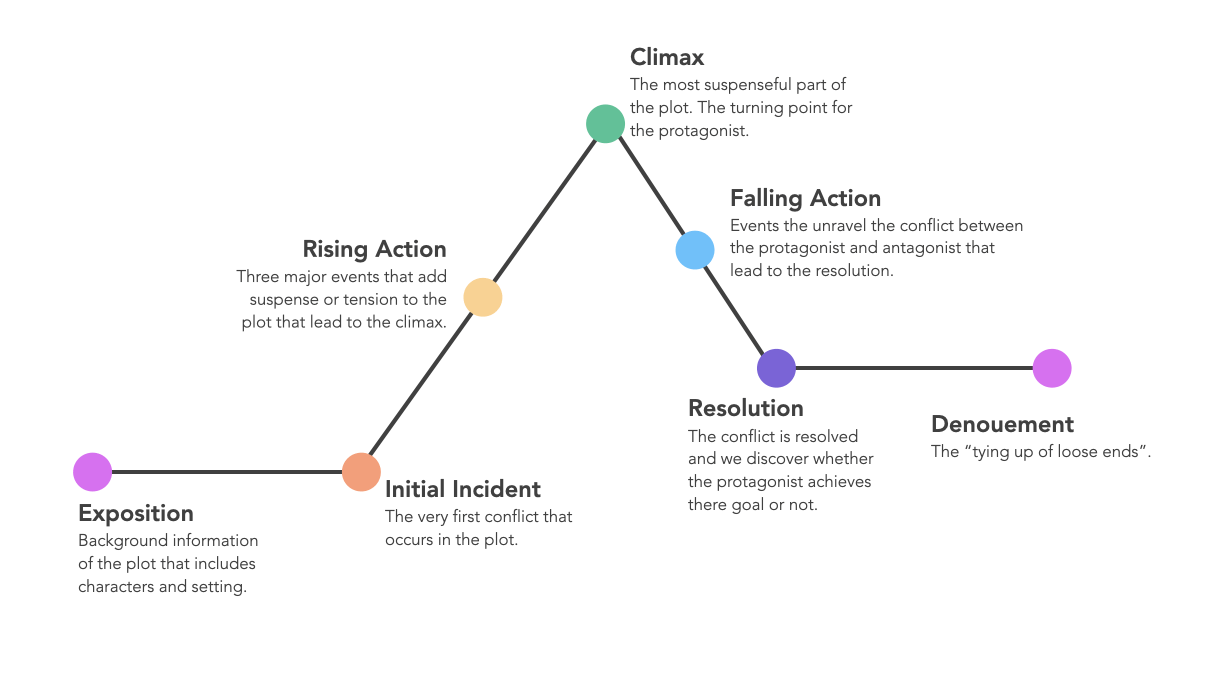
My story goes something like this…
There’s no one way to find the beginning and end points of your memoir, but primarily, this should be rooted in the first piece of advice: have you achieved the “why”? If so, end it.
Don’t Get Stuck on Facts
This doesn’t mean lie. But if you feel the need to inform the reader of every detail of the story, it’s going to become a pretty dull read. It might all be true, but the “why” will have left the building.
Life doesn’t work in story arcs — things are messy, beginnings aren’t really beginnings and ends aren’t really ends. Of course, you want your memoir to reflect that to a certain extent, but you also want it to be readable. So omitting facts and cleaning up narrative elements (even if it’s not the complete and total truth) becomes crucial to the memoir style. The truth lies in the grand strokes, the emotions and characters.
Memoir Movies
Memoirs in cinema.
Memoirs have definitely been around longer than cinema, but movies about people and their lives (specifically biographies, aka biopics ) have been pretty common since the medium’s inception. Some of these movies could even count as memoir-esque, like Young Mr. Lincoln (1939), which, instead of chronicling Abraham Lincoln’s tenure as president (or his entire life), examines his time as a lawyer in the 1830s.
What is a memoir • Young Mr. Lincoln
So while there have been plenty of biographies, many of the most well-known movies based on memoirs have been fairly recent. One of the most high profile of these is Eat, Pray, Love , a 2006 memoir by Elizabeth Gilbert that turned into a 2010 movie starring Julia Roberts.
Eat, Pray, Love • A pinnacle in memoir movies
But even before that we had Girl, Interrupted , a 1993 memoir by Susanna Kaysen which made it into a film in 1999 starring Winona Ryder and Angelina Jolie. The opening lines of the film even retain the memoir feel.
Take a look at them below, with the script that we imported into StudioBinder’s screenwriting software .
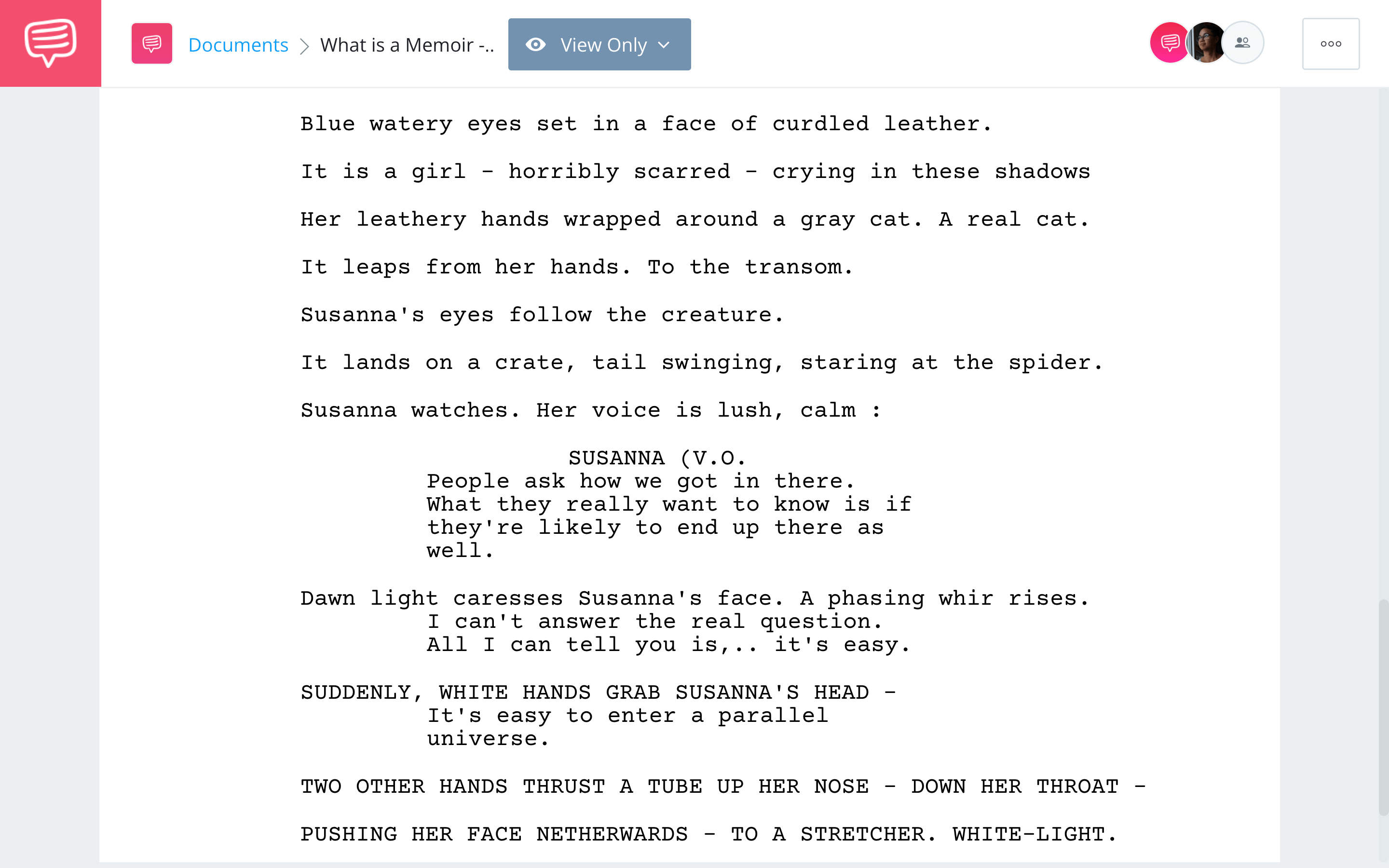
Girl, Interrupted • Read the entire opening
The voiceover feels like Kaysen answering the “why do we care” question that we outlined in our tips section.
And then of course there was The Basketball Diaries , a Jim Carroll memoir from 1978 that turned into a Leonardo DiCaprio movie in 1995. Here's the opening scene and credits.
Memoir movies • The Basketball Diaries
From 2009’s Julie & Julia (based on two separate memoirs) to The Theory of Everything 2014’s (the Stephen Hawking memoir written by his wife Jane Hawking) to 2018’s Beautiful Boy (based on two memoirs about the same subject), there has been no shortage of memoir based films in the last two decades.
Memoir movies • The Theory of Everything
Some are more successful and acclaimed than others, but like novels, there are plenty out there for filmmakers to adapt. And don’t forget there are also movies based on true events that weren’t chronicled in memoirs before, so if you want to adapt a moment in your life as a script for a movie, go for it.
How to Write an Adaptation
Now that we have covered memoirs and movies based on memoirs, it’s time to look at how you might go about adapting one. We cover the step-by-step process of adapting a book for the screen, all with examples and even some quotes.
Up Next: Writing an Adaptation →
Showcase your vision with elegant shot lists and storyboards..
Create robust and customizable shot lists. Upload images to make storyboards and slideshows.
Learn More ➜
T he sitcom has been a staple of television for nearly 80 years. need a tight APP intro here that transitions to below..
The XYZ Script
Click to view and download the entire XYZ script PDF below.
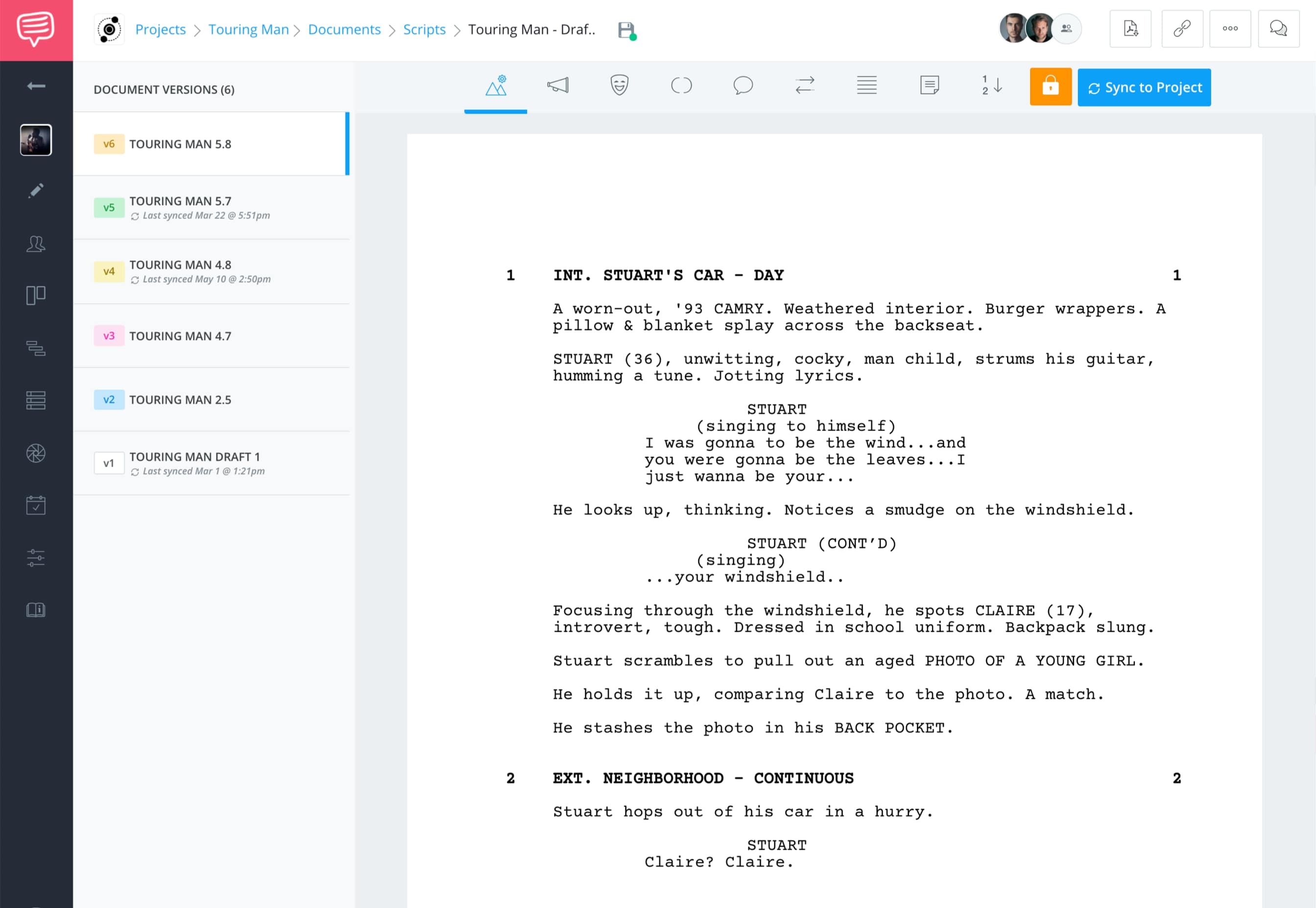
Click above to read and download the entire XYZ script PDF
WHO WROTE THE XYZ SCRIPT?
Written by jonathan nolan, chris nolan, and david s. goyer.
VERY short bio about the screenwriter and a bit of history or trivia about this script. Perhaps the awards, accolades, or careers it's launched. This adds credibility and importance to the whole post. The image to the left should be swapped out with a SQUARE cropping of an image of the writer (400px compressed JPG). Make sure it's a polished photoshoot image like the one of Chazelle here. Cap this block at 10 lines.
Story beats in the XYZ script
Marshmallow pie sweet roll gummies candy icing. Marshmallow pie sweet roll gummies candy icing.Marshmallow pie sweet roll gummies candy icing. Marshmallow pie sweet roll gummies candy icing.
Script Teardown
Script structure of "movie title", 1. exposition (beginning).
Write a brief description here. Try to keep this approximately 2-3 sentences or about 15-30 words.
2. INCIDITING INCIDENT
3. climax of act one, 4. obstacles (rising action), 5. midpoint (big twist), 6. disaster & crisis, 7. climax of act two, 8. climax of act three, 9. obstacles (descending action), 10. denouement (wrap up), 11. resolution, xyz script takeaway #1, writing style / unique execution / or searched scene.
This section will be a scene study of something novel. It could be an example of a general writing style, or unique execution, formatting of something specific (e.g. pre-laps, musical sequences, suspense, twist reveals, etc), dialogue scene. If, in your SEO research you find people searching for a particular scene, then that's a hint it should become a scene study section and keyword used in the heading.
You can have anywhere from 1-3 sections like this in the post.
Embed the video from Youtube and set it up, letting the reader know what to focus on in the video.
Scene Study: Tommy buys a dozen red roses
After the embed, set up the script tie-in. Call out what they should focus on and provide a good reason on why they should click the app tie-in. In many cases this would be to read the entire scene. In other cases, you could add something clever in the comments or script notes, or versions.
Also, since the app link opens a script at Scene 1, you'll want to let them know what scene number they should scroll down to.
Read the Flower Shop Scene — Scroll to Scene XX
Marshmallow pie sweet roll gummies candy icing. Marshmallow pie sweet roll gummies candy icing. I love candy canes soufflé I love jelly beans biscuit. Marshmallow pie sweet roll gummies candy icing.
Marshmallow pie sweet roll gummies candy icing. I love candy canes soufflé I love jelly beans biscuit. Marshmallow pie sweet roll gummies candy icing.
- Start breaking down your script →
- Learn how to analyze and break down a script →
- FREE Download: Script Breakdown Sheet Template →
Setup the next logical script for this reader to review. Keep in mind the style, genre, and writer of the above script. For example, a Tarantino script should have an Up Next to another Tarantino script (ideally), or another pulp-y script (e.g. Lock, Stock, and Two Smoking Barrels), or a similar genre, or dialogue-heavy script by another relevant auteur (e.g. PT Anderson).
Up Next: Article Name →
Write and produce your scripts all in one place..
Write and collaborate on your scripts FREE . Create script breakdowns, sides, schedules, storyboards, call sheets and more.
Leave a comment
Your email address will not be published. Required fields are marked *
- Pricing & Plans
- Product Updates
- Featured On
- StudioBinder Partners
- The Ultimate Guide to Call Sheets (with FREE Call Sheet Template)
- How to Break Down a Script (with FREE Script Breakdown Sheet)
- The Only Shot List Template You Need — with Free Download
- Managing Your Film Budget Cashflow & PO Log (Free Template)
- A Better Film Crew List Template Booking Sheet
- Best Storyboard Softwares (with free Storyboard Templates)
- Movie Magic Scheduling
- Gorilla Software
- Storyboard That
A visual medium requires visual methods. Master the art of visual storytelling with our FREE video series on directing and filmmaking techniques.
We’re in a golden age of TV writing and development. More and more people are flocking to the small screen to find daily entertainment. So how can you break put from the pack and get your idea onto the small screen? We’re here to help.
- Making It: From Pre-Production to Screen
- What is a Call Sheet — Everything You Need to Know
- What is Narrative Pacing — And How to Control It
- How to Make a Call Sheet for Film & TV (Free Example)
- What is a Storyboard? The Fundamentals to Get You Started
- 0 Pinterest
- Key Differences
Know the Differences & Comparisons
Difference Between Autobiography and Memoir

While an autobiography covers the entire life of the writer, the memoir is about a part of life of the writer. Read the article provided below, in which substantial differences between autobiography and memoir are explained in detail.
Content: Autobiography Vs Memoir
Comparison chart, similarities.
| Basis for Comparison | Autobiography | Memoir |
|---|---|---|
| Meaning | Autobiography refers to that form of literature in which a person writes or narrates his own life story. | A literary genre, containing memories, written by the individual on the incidents and events occurred to him in his life, is called memoir. |
| What is it? | An account of life. | An account from life. |
| Nature | Detailed | Centralized |
| Covers | Entire life of the author. | Particular section of life of the author. |
| Protagonist | First or third person | First person |
| Focuses on | All events of the life of the leading character. | Exploring significant event or incident in depth, in the memorist's life. |
| Order | Follows a chronological order. | Can begin anywhere. |
Definition of Autobiography
Autobiography is a detailed account of an individual’s life, written or told by that individual himself. It is an abbreviated summary written in chronological order, that tells one’s experience in life, like the highs and lows, in different phases like childhood, adulthood and so on. Usually, they are written in the first person, ‘I’ and in this way the writer can easily express his views on the life events.
An autobiography can be written by the subject or the subject may hire a ghost writer, to write for them. It can be in the form of books, audio recording, drama, skit, documentaries or movies.
Definition of Memoir
The word ‘memoir’ is a French term which refers to reminiscence or remembrance. It is a memory written by the subject himself, in real time that presents a moral or message to the readers. It aims to explain how the subject learned a lesson from his experience or how he changed himself. The author of the memoir is called memorist. It covers a specific section, stage or time of the author’s life, that cause him to change like a turning point or a failure, etc.
A memoir is a less formal, often friendly work, which is supposed to cover the details that are accurate and facts based. It is structure-less i.e. it can begin at any point.
Key Differences Between Autobiography and Memoir
The significant differences between autobiography and memoir are described in the points given below:
- A form of literature, in which the subject writes or narrates his own life story, is known as Autobiography. The memoir is a literary genre, which is a collection of memories, written by the individual on the incidents and events occurred to him in his life.
- An autobiography contains intricate details about the life events of the subject. On the other hand, a memoir is more centralised in nature which focuses on the specific events that happened to the author.
- An autobiography covers the entire life of the subject, but a memoir spans a particular section or time or stage, of the memoirist’s life.
- An autobiography is written in first or third person, whereas a memoir is written in the first person.
- An autobiography focuses on all events of the life of the protagonist. In contrast, memoir, focuses on exploring any particular event or incident in depth, which is important to the memorist.
- An autobiography follows a chronological order while a memoir is structure-less i.e. it does not follow any order like a novel, it can start at any point.
- Nonfictional literary genre.
- Written by the subject himself.
- Written in the first person.
A memoir is recognised as a subgenre of the biography and autobiography. The basic difference between these two literary forms is that an autobiography is a story of a life that contains all the details of the life of the main character like birthplace, education, work, relationship, etc. of the subject. On the other hand, memoir focuses on a specific aspect of the lead character’s life.
You Might Also Like:

September 23, 2019 at 7:10 pm
I like it a lot
November 18, 2022 at 11:49 pm
Gracious! what an extraordinary post which I appreciated the most. Gratitude for sharing!
Leave a Reply Cancel reply
Your email address will not be published. Required fields are marked *
Save my name, email, and website in this browser for the next time I comment.
Become a Bestseller
Follow our 5-step publishing path.
Fundamentals of Fiction & Story
Bring your story to life with a proven plan.
Market Your Book
Learn how to sell more copies.
Edit Your Book
Get professional editing support.
Author Advantage Accelerator Nonfiction
Grow your business, authority, and income.
Author Advantage Accelerator Fiction
Become a full-time fiction author.
Author Accelerator Elite
Take the fast-track to publishing success.
Take the Quiz
Let us pair you with the right fit.
Free Copy of Published.
Book title generator, nonfiction outline template, writing software quiz, book royalties calculator.
Learn how to write your book
Learn how to edit your book
Learn how to self-publish your book
Learn how to sell more books
Learn how to grow your business
Learn about self-help books
Learn about nonfiction writing
Learn about fiction writing
How to Get An ISBN Number
A Beginner’s Guide to Self-Publishing
How Much Do Self-Published Authors Make on Amazon?
Book Template: 9 Free Layouts
How to Write a Book in 12 Steps
The 15 Best Book Writing Software Tools
What is a Biography? Definition, Elements, and More

Get a Free Copy of Published.
The proven path from blank page to 10,000 copies sold.
Have you found yourself browsing the biography section of your favorite library or bookstore and wondered what is a biography book ?
Don’t worry, we’ve got you covered! Plenty of people wonder “What is a biography vs autobiography?” or “What is a biography vs memoir?” And today we are here to set the record straight.
In this brief guide to what a biography is, we’ll explore the definition of a biography, along with its purpose, how you might write one yourself, and more. Let’s get started.
Need A Nonfiction Book Outline?
In this article, we’ll explore:
What is a biography of a person .
What is a biography? A biography is what we call the written account of someone’s life. It is written by someone other than whom the book is about. For example, an author named Walter Isaacson has written biographies on Steve Jobs , Leonardo da Vinci , and Einstein .
A biography is what focuses on the significant events that occurred in a person’s life, along with their achievements, challenges they’ve overcome, background, relationships, and more.
They’re an excellent way to get a comprehensive understanding of someone you admire.
So now you understand what a biography is, but what is the point of a biographical story?
What is the point of a biography?
Biographies have a few purposes. They can serve as historical records about a notable figure, inspire and educate readers, and give us more insight into how the folks we’re interested in lived their lives.
And, if you are studying a notable figure, like Einstein, a biography is what you will use as a research resource !

Does a biography cover someone’s entire life?
Biographies typically encompass most of a person’s life. Obviously, if the subject of the book is still alive, their entire life cannot be written about.
If the person lived a long and eventful life with many achievements, the author may cover only an especially noteworthy period of the subject’s life.
Even so, the point of a biography is to learn about your subject beyond just what they achieved, so there will likely still be contextual information about the subject’s childhood, formative experiences, and more.
Is a biography always nonfiction?
Surprisingly, a biography is not always nonfiction . There is a genre called biographical fiction in which the author uses real-life people and events to inspire their fictional narrative .
This genre is fun because the author can postulate about what their subject may have been thinking, feeling, and more in a way they may not be able to with a nonfiction biography.
Just keep in mind that biographical fiction blends facts with made-up information, so it can’t be used as a primary research source. That said, it’s a fun supplement to learning about a figure you’re interested in, and can help generate curiosity and insights about their lives.
If you’d like to read a biographical fiction book, check out books like:
- The Paris Wife by Paula McLain
- The Other Boleyn Girl by Philippa Gregory
- The Aviator’s Wife by Melanie Benjamin
Biography vs autobiography
What is a biography vs autobiography? Well, a biography is written about another person. An autobiography is when the writer writes about their own life. So Becoming by Michelle Obama would be an autobiography, not a biography. It's only a biography if another author decides to write about Michelle Obama.
Biography vs memoir
What is a biography vs memoir? This distinction is a bit harder to define. A memoir is usually written around a theme or a specific time period in someone's life, and the author is writing about their own memories. Whereas a biography is in chronological order and follows (more or less) the whole lifetime of a person, but it is a person other than the author.
So if someone is telling stories about their travels through South America, that isn't covering their life story, and it is written about themself, so it would be a memoir instead of a biography.
Now that you know what a biography is, and the importance of biographies, let's discuss why someone would want to write one.
Why would someone write a biography?
An author may want to write a biography about someone because they’re inspired by them and want to educate the public about them. Or, they want to create a historical resource for scholars to study.
An author may even have a commercial motivation for writing a biography, like a lucrative celebrity profile or a biography that has the potential to be adapted into a film or television series.
Is it possible to write a biography about yourself?
If you write a book about yourself, it’s called an autobiography or a memoir—not a biography. So, when you start writing your book, make sure you don't get caught in the autobiography vs biography or biography vs memoir maze.
If you’d like a book written about you that you’re not the author of, you can hire a writer to create one for you. You may choose to do this if you feel your writing skills are not up to par or you don’t have time to write your own biography .
Hiring a writer to write your biography can also make sense if you’d like to make sure the book is as objective and professional as it can be. Of course, this means you have to surrender control of the narrative!
Some folks may also feel that a biography has more credence than an autobiography or memoir since the book’s subject doesn’t get to decide what is said about them. So hiring a writer for your biography can be a good way to credibly get your story out there.
Can you write a biography about anyone you’d like?
When it comes to writing about other people’s lives, it’s wise to proceed with an abundance of caution. After all, you don’t want to be sued for defamation or find yourself in other legal hot water.
We highly suggest you look into the legal ramifications of writing about your chosen subject before you begin writing about them, but here are a couple of general things to know:
- Typically, you don’t need permission to write about someone who is a public figure. However, the definition of a public figure can vary depending on your jurisdiction and more, so you’ll need to do your research.
- Even if you discover that you can write about your subject without permission, it’s still advisable to contact the subject and or their family. Not only is it good manners, but it may afford you some insider information about your subject.
- If your subject or the family of your subject tells you they don’t want a biography about them, you may still legally be able to proceed—consult a lawyer—but you might face backlash when the book is published, limited access to information about your subject, and perhaps a pressing sense of guilt. Not worth it, if you ask us!
Examples of biographies
What's a biography that is really good? Here are a few of the best biographies you should add to your list:
- Frida: A Biography of Frida Kahlo by Hayden Herrera
- Heavier Than Heaven: A Biography of Kurt Cobain by Charles R. Cross
- Anne Frank: The Biography by Melissa Müller
- You Never Forget Your First: A Biography of George Washington by Alexis Coe
- The Beatles: The Biography by Bob Spitz
- Victoria the Queen: An Intimate Biography of the Woman Who Ruled an Empire by Julia Baird
Final thoughts
Now if anyone asks you “What's a biography?” You should be able to tell them (and give them some great examples).
Reading a biography is a great way to get inspired, learn from other people’s experiences, and more. And writing a biography can be an excellent educational experience in its own right! If you’d like to publish a biography but don’t know where to start, we’re here to help. Simply schedule a book consultation to get started.

25 Personification Examples for Writers: What It Is & How to Use It
Fiction, Learning, Writing

What is a Beta Reader? How to Hire One and 10 Questions to Ask

5 Tips For Mastering Your Rough Draft
Join the community.
Join 100,000 other aspiring authors who receive weekly emails from us to help them reach their author dreams. Get the latest product updates, company news, and special offers delivered right to your inbox.
- Organizations
- Planning & Activities
- Product & Services
- Structure & Systems
- Career & Education
- Entertainment
- Fashion & Beauty
- Political Institutions
- SmartPhones
- Protocols & Formats
- Communication
- Web Applications
- Household Equipments
- Career and Certifications
- Diet & Fitness
- Mathematics & Statistics
- Processed Foods
- Vegetables & Fruits
Difference Between Memoir and Biography
• Categorized under Words | Difference Between Memoir and Biography
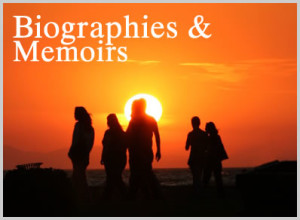
Memoir vs Biography
What is the difference between a biography and a memoir? Both biographies and memoirs tell the stories of a person’s life. They are generally found in the format of a book, which is where the original meaning is used, but it may also be observed taking the modern shape of a movie or video documentary. It might be said that you are “reading a biography of George Washington and then you will watch the movie, that is also a biography of his life”. You may also “read the memoirs of George Washington, that he wrote while fighting the Revolutionary War”. The differences between the usage of ‘biography’ and ‘memoir’ are technical, but important to know and understand for correct usage.
A biography gives a general account of the events of someone’s life. Most published or filmed biographies are about historical figures or famous people. A biography generally starts with a person’s childhood. It may even begin the telling of the story before the person was born, in order to better understand the person’s family situation or the events in the lives of the person’s parents. A biography ends with the person’s death, or if they are still alive, with a momentous event or current situation in their life. It chronicles or tells the events in their life in the order that they happened. It may have commentary, discussion or interpretation on the events in a person’s life, but it mostly focuses on factual or historical evidence. An autobiography is a biography that someone has written about their own life in a similar manner as a biography. This may be published while they are still alive or posthumously, after the person has died.
A memoir focuses on certain memories, experiences or particular aspects of someone’s life. It is less broad and less general than a biography. A memoir is written by the person it is about or written by a professional writer at the request of the person. Usually a memoir has more of a focus on emotions and feelings rather than merely an account of chronological events, such as an autobiography would tell. It may not be based on factual event as much as the person wanting their audience to understand ‘their side of the story’, or their perception of how they were affected by events. Because of this, there is also a more anecdotal, or story-like tone to the writing. It may also be that the person’s account is of a particular noteworthy or famous historical event that is based on their personal knowledge or experience, such as a soldier’s memoir about surviving World War II in a prisoner of war camp.
So when trying to decide whether a story about someone’s life is a biography or a memoir, keep in mind who wrote the story, what does the story tell, how it is written, and what the meaning or purpose the author had in mind when writing the story.
- Recent Posts
- Difference Between Hold on And Hang on - February 19, 2016
- Difference Between “Give it up” and “Applaud” - February 18, 2016
- Difference Between Condole And Console - February 17, 2016
Sharing is caring!
Read More ESL Articles
Search differencebetween.net :.
- Difference Between Autobiography And Memoir
- The Difference Between Autoethnography and Autobiography
- Difference Between Autobiography and Biography
- Difference Between Author and Writer
- Difference Between Legend and Myth
Cite APA 7 Hutchinson, A. (2016, June 8). Difference Between Memoir and Biography. Difference Between Similar Terms and Objects. http://www.differencebetween.net/language/words-language/difference-between-memoir-and-biography/. MLA 8 Hutchinson, Aaron. "Difference Between Memoir and Biography." Difference Between Similar Terms and Objects, 8 June, 2016, http://www.differencebetween.net/language/words-language/difference-between-memoir-and-biography/.
Leave a Response
Name ( required )
Email ( required )
Please note: comment moderation is enabled and may delay your comment. There is no need to resubmit your comment.
Notify me of followup comments via e-mail
References :
Advertisments, more in 'words'.
- Difference Between Center and Centre
- Difference Between Lodge and Resort
- Difference Between Authoritarian and Fascism
- Difference Between Advocate and Barrister
- Difference Between Advocacy and Lobbying
Top Difference Betweens
Get new comparisons in your inbox:, most emailed comparisons, editor's picks.
- Difference Between MAC and IP Address
- Difference Between Platinum and White Gold
- Difference Between Civil and Criminal Law
- Difference Between GRE and GMAT
- Difference Between Immigrants and Refugees
- Difference Between DNS and DHCP
- Difference Between Computer Engineering and Computer Science
- Difference Between Men and Women
- Difference Between Book value and Market value
- Difference Between Red and White wine
- Difference Between Depreciation and Amortization
- Difference Between Bank and Credit Union
- Difference Between White Eggs and Brown Eggs

Memoir Or Autobiography? How To Choose The Right Genre
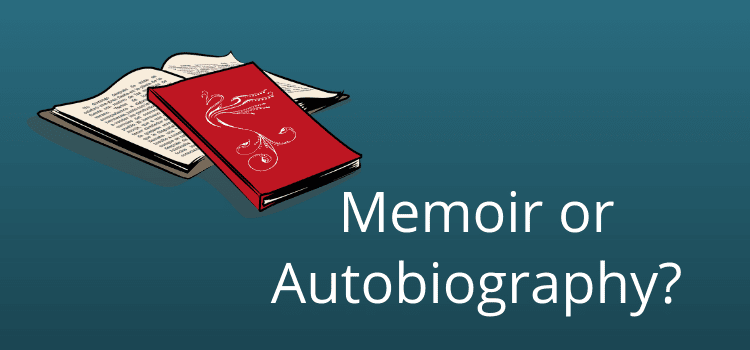
A memoir and autobiography are similar genres that detail a life story.
In literary circles, the definition between the two is sometimes a little fuzzy.
Both record the author’s life story and are written in the first-person point of view. That is, I was born, I lived, and I married the man/woman of my dreams.
Perhaps the best way to define each genre is to say that one is a factual biography, and the other is a memory of a particular time.
Article Contents
Memoir vs. autobiography
You are in the process of writing your story.
Of course, it’s about you.
But which genre will you choose when the day comes to publish your book?
You can usually select only two genre categories with most major self-publishing services.
So you might be tempted to choose both.
It might not seem like a big deal.
But depending on how you write your story, you might want to categorize your book in the most appropriate genre.
For a quick definition, Writer’s Digest says this.
An autobiography focuses on the chronology of the writer’s entire life, while a memoir covers one specific aspect of the writer’s life.
With that said, let’s have a look at some tangible differences between a memoir and an autobiography.
What is a memoir?
The main feature of a memoir is that it is about a specific time in an author’s life.
It is often a memory or reminiscence of a life-changing event and documents the story from the aspect of challenge through to resolution.
More focused than an autobiography, a memoir is an intimate look at a moment in time. Source: Celadon Books
In other words, the storyline will detail an experience that perhaps involves periods of sadness, difficulty, friendship, and happiness.
Some memoirs touch on life subjects such as divorce, illness, professional challenges, or family issues.
Similar to a novel, it is a story with a protagonist. The only difference is that it is not fiction, and the protagonist is the author.
But because it is a story, an author can use a range of storytelling literary devices when writing it.
There can be suspense, drama, danger, a climax, and a dénouement .
One notable aspect of a memoir is that it doesn’t necessarily deal with many hard facts.
Because it is a memory from the author’s viewpoint, a memoir focuses more on the feelings and emotions of the time to drive the plot.
What is an autobiography?
If you remove the prefix, you have a biography, which gives you a clue to the meaning.
A biography deals with facts from a third-person point of view . It usually covers a person’s entire life and is written by someone else.
Elvis Presley, the famous American rock and roll singer, was born in 1935 in Tupelo, Mississippi.
He lived in Memphis, Tennessee. The world mourned when he died in 1977.
When you put the auto prefix back, it is impossible for an author to write their own full biography.
An autobiography can only cover the period up to the present because the author is still alive.
Unlike a memoir, it is far more fact-based than emotional. It is not delving into feelings as deeply.
Usually, it follows a strict chronological order of events that is heavy on facts and details and is always written in the first person.
For celebrities, politicians, and people of fame, the book could be written by a ghostwriter.
But a strict definition is not so easy.
For example, The Living Handbook of Narratology uses this definition.
Notoriously difficult to define, autobiography in the broader sense of the word is used almost synonymously with “life writing” and denotes all modes and genres of telling one’s own life.
More specifically, autobiography as a literary genre signifies a retrospective narrative that undertakes to tell the author’s own life, or a substantial part of it, seeking (at least in its classic version) to reconstruct his/her personal development within a given historical, social and cultural framework.
When you are writing, the process will be much less about telling a story. It will be more about documenting a collection of facts in the correct time order.
Does it matter which one you choose?
In the end, you could say that there is very little difference between an autobiography and a memoir. Most books in these genres are a mixture of the two styles of writing.
It would be difficult reading if there were no story, only a list of facts and figures.
Every book needs emotion and characters that readers can connect with.
Scribe Media makes a good point about any differentiation.
Memoirs are autobiographies without the elitist attitude.
It’s like saying a dog is different from a canine. Or a car is different from an automobile.
It’s up to you as the author to decide what you are writing.
But in all honesty, it isn’t easy to separate the two. A memoir is an autobiography, and the reverse is true.
How you tell your life, or part of your life story from beginning to end, is the most important ingredient.
Good writing is always good writing.
But it is challenging to write a story using the first-person point of view.
Jane Friedman gives a clue about how to use this POV to create a story.
First-person POV is fixed, in that it’s limited to what you knew and experienced at the time of a given scene. However, the fact that your perspective changed over time is what makes a memoir a story.
To create the most powerful story, use your perspective today to identify scenes that were aha moments, where your perspective on your theme changed. The moment when you faced a fear directly. The moment you escaped someone else’s expectations. The moment you realized you were in love with the wrong person.
If you focus first on the inner journey, you’ll find the best scenes to bring that transformation to life.
The decision you make about your particular genre hardly matters because your story will fit into both.
But if your memory is the basis of your story, you might want to call it your memoir.
Related reading: Will Self-Publishing Save The Literary Fiction Genre For Authors?
About The Author
Derek Haines
More articles.
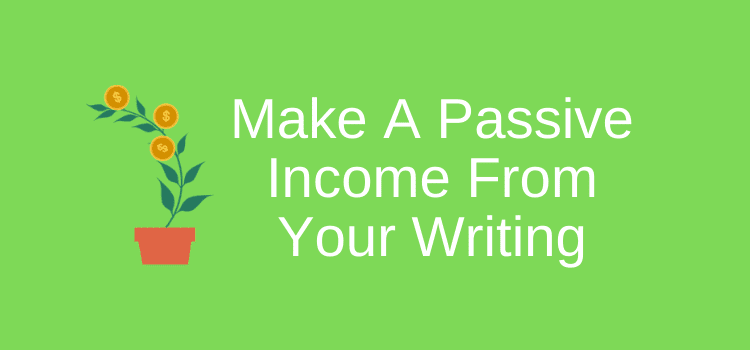
Profitable Passive Income Ideas And Tips For All Writers And Authors
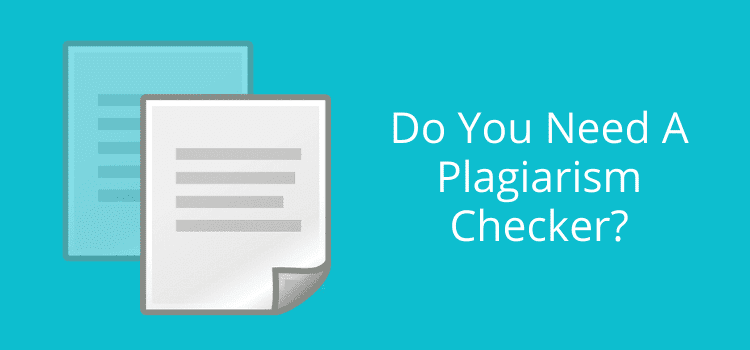
The Best Free Plagiarism Checkers For Writers, Authors And Students
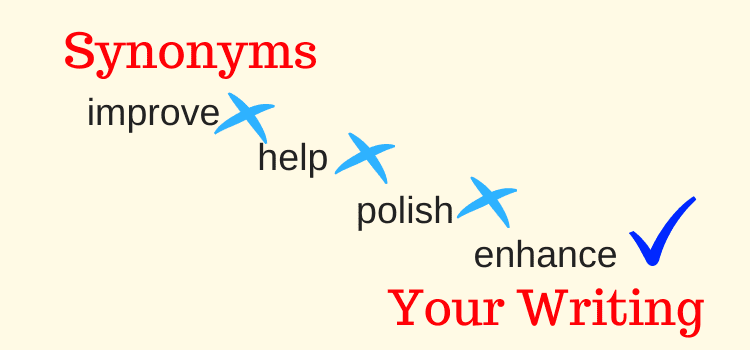
How To Use Synonyms To Improve And Enhance Your Writing
5 thoughts on “memoir or autobiography how to choose the right genre”.
I definitely couldn’t fit my autobiography into one volume, it would make War and Peace look like a novella! I’ve written three memoirs so far and have only covered a nine-year period of my life. At least three more to come – if I live long enough to write them. I have to be in the right/write mood.
It sounds like you definitely qualify for an autobiography and not a memoir, Ann.
I have a variety of writing I would like to bring to a book for my family its a hodge-podge of poems-essays-rants and part my life story
lol so this entire post can be summed up ‘they’re the same thing, go about your day’.
Very useful, thank you!! Having just published what I thought would be a single volume, but realising later that there would have to be at least a second one — which I have just started work on — I think some ideas picked up here will colour this, my second effort in prose, having written only poetry all my life!
Guido Comin aka PoetaMatusèl
Leave a Comment Cancel Reply
Your email address will not be published. Required fields are marked *
Save my name, email, and website in this browser for the next time I comment.
To prevent spam, all comments are moderated and will be published upon approval. Submit your comment only once, please.
This site uses Akismet to reduce spam. Learn how your comment data is processed .
Privacy Overview

- Games & Quizzes
- History & Society
- Science & Tech
- Biographies
- Animals & Nature
- Geography & Travel
- Arts & Culture
- On This Day
- One Good Fact
- New Articles
- Lifestyles & Social Issues
- Philosophy & Religion
- Politics, Law & Government
- World History
- Health & Medicine
- Browse Biographies
- Birds, Reptiles & Other Vertebrates
- Bugs, Mollusks & Other Invertebrates
- Environment
- Fossils & Geologic Time
- Entertainment & Pop Culture
- Sports & Recreation
- Visual Arts
- Demystified
- Image Galleries
- Infographics
- Top Questions
- Britannica Kids
- Saving Earth
- Space Next 50
- Student Center
- What was Bill Clinton’s childhood like?
- What is Bill Clinton’s family like?
- What is Bill Clinton’s occupation?
- What was Dwight D. Eisenhower’s family like?
- Where was Dwight D. Eisenhower educated?

Our editors will review what you’ve submitted and determine whether to revise the article.
- Pressbooks Create - Power of the Pen - Memoir
- Literary Devices - Memoir
memoir , history or record composed from personal observation and experience. Closely related to, and often confused with, autobiography , a memoir usually differs chiefly in the degree of emphasis placed on external events; whereas writers of autobiography are concerned primarily with themselves as subject matter, writers of memoir are usually persons who have played roles in, or have been close observers of, historical events and whose main purpose is to describe or interpret the events. The English Civil Wars of the 17th century, for example, produced many such reminiscences, most notable of which are the Memoirs of Edmund Ludlow and Sir John Reresby. The French have particularly excelled at this genre; one of the greatest memoirists of his time was the Duc de Saint-Simon , whose Mémoires (covering the early 1690s through 1723), famous for their penetrating character sketches, provide an invaluable source of information about the court of Louis XIV . Another of the great French memoirists was François-René, vicomte de Chateaubriand, who devoted the last years of his life to his Mémoires d’outre-tombe (1849–50; “Memoirs from Beyond the Tomb”). In the 20th century, many distinguished statesmen and military men have described their experiences in memoirs. Notable reminiscences of World War II are the memoirs of England’s Viscount Montgomery (1958) and Charles De Gaulle ’s Mémoires de guerre (1954–59; War Memoirs, 1955–60).
- Search Menu
Sign in through your institution
- Browse content in Arts and Humanities
- Browse content in Archaeology
- Anglo-Saxon and Medieval Archaeology
- Archaeological Methodology and Techniques
- Archaeology by Region
- Archaeology of Religion
- Archaeology of Trade and Exchange
- Biblical Archaeology
- Contemporary and Public Archaeology
- Environmental Archaeology
- Historical Archaeology
- History and Theory of Archaeology
- Industrial Archaeology
- Landscape Archaeology
- Mortuary Archaeology
- Prehistoric Archaeology
- Underwater Archaeology
- Zooarchaeology
- Browse content in Architecture
- Architectural Structure and Design
- History of Architecture
- Residential and Domestic Buildings
- Theory of Architecture
- Browse content in Art
- Art Subjects and Themes
- History of Art
- Industrial and Commercial Art
- Theory of Art
- Biographical Studies
- Byzantine Studies
- Browse content in Classical Studies
- Classical History
- Classical Philosophy
- Classical Mythology
- Classical Literature
- Classical Reception
- Classical Art and Architecture
- Classical Oratory and Rhetoric
- Greek and Roman Epigraphy
- Greek and Roman Law
- Greek and Roman Archaeology
- Greek and Roman Papyrology
- Late Antiquity
- Religion in the Ancient World
- Digital Humanities
- Browse content in History
- Colonialism and Imperialism
- Diplomatic History
- Environmental History
- Genealogy, Heraldry, Names, and Honours
- Genocide and Ethnic Cleansing
- Historical Geography
- History by Period
- History of Agriculture
- History of Education
- History of Emotions
- History of Gender and Sexuality
- Industrial History
- Intellectual History
- International History
- Labour History
- Legal and Constitutional History
- Local and Family History
- Maritime History
- Military History
- National Liberation and Post-Colonialism
- Oral History
- Political History
- Public History
- Regional and National History
- Revolutions and Rebellions
- Slavery and Abolition of Slavery
- Social and Cultural History
- Theory, Methods, and Historiography
- Urban History
- World History
- Browse content in Language Teaching and Learning
- Language Learning (Specific Skills)
- Language Teaching Theory and Methods
- Browse content in Linguistics
- Applied Linguistics
- Cognitive Linguistics
- Computational Linguistics
- Forensic Linguistics
- Grammar, Syntax and Morphology
- Historical and Diachronic Linguistics
- History of English
- Language Acquisition
- Language Variation
- Language Families
- Language Evolution
- Language Reference
- Lexicography
- Linguistic Theories
- Linguistic Typology
- Linguistic Anthropology
- Phonetics and Phonology
- Psycholinguistics
- Sociolinguistics
- Translation and Interpretation
- Writing Systems
- Browse content in Literature
- Bibliography
- Children's Literature Studies
- Literary Studies (Asian)
- Literary Studies (European)
- Literary Studies (Eco-criticism)
- Literary Studies (Modernism)
- Literary Studies (Romanticism)
- Literary Studies (American)
- Literary Studies - World
- Literary Studies (1500 to 1800)
- Literary Studies (19th Century)
- Literary Studies (20th Century onwards)
- Literary Studies (African American Literature)
- Literary Studies (British and Irish)
- Literary Studies (Early and Medieval)
- Literary Studies (Fiction, Novelists, and Prose Writers)
- Literary Studies (Gender Studies)
- Literary Studies (Graphic Novels)
- Literary Studies (History of the Book)
- Literary Studies (Plays and Playwrights)
- Literary Studies (Poetry and Poets)
- Literary Studies (Postcolonial Literature)
- Literary Studies (Queer Studies)
- Literary Studies (Science Fiction)
- Literary Studies (Travel Literature)
- Literary Studies (War Literature)
- Literary Studies (Women's Writing)
- Literary Theory and Cultural Studies
- Mythology and Folklore
- Shakespeare Studies and Criticism
- Browse content in Media Studies
- Browse content in Music
- Applied Music
- Dance and Music
- Ethics in Music
- Ethnomusicology
- Gender and Sexuality in Music
- Medicine and Music
- Music Cultures
- Music and Religion
- Music and Culture
- Music and Media
- Music Education and Pedagogy
- Music Theory and Analysis
- Musical Scores, Lyrics, and Libretti
- Musical Structures, Styles, and Techniques
- Musicology and Music History
- Performance Practice and Studies
- Race and Ethnicity in Music
- Sound Studies
- Browse content in Performing Arts
- Browse content in Philosophy
- Aesthetics and Philosophy of Art
- Epistemology
- Feminist Philosophy
- History of Western Philosophy
- Metaphysics
- Moral Philosophy
- Non-Western Philosophy
- Philosophy of Science
- Philosophy of Action
- Philosophy of Law
- Philosophy of Religion
- Philosophy of Language
- Philosophy of Mind
- Philosophy of Perception
- Philosophy of Mathematics and Logic
- Practical Ethics
- Social and Political Philosophy
- Browse content in Religion
- Biblical Studies
- Christianity
- East Asian Religions
- History of Religion
- Judaism and Jewish Studies
- Qumran Studies
- Religion and Education
- Religion and Health
- Religion and Politics
- Religion and Science
- Religion and Law
- Religion and Art, Literature, and Music
- Religious Studies
- Browse content in Society and Culture
- Cookery, Food, and Drink
- Cultural Studies
- Customs and Traditions
- Ethical Issues and Debates
- Hobbies, Games, Arts and Crafts
- Natural world, Country Life, and Pets
- Popular Beliefs and Controversial Knowledge
- Sports and Outdoor Recreation
- Technology and Society
- Travel and Holiday
- Visual Culture
- Browse content in Law
- Arbitration
- Browse content in Company and Commercial Law
- Commercial Law
- Company Law
- Browse content in Comparative Law
- Systems of Law
- Competition Law
- Browse content in Constitutional and Administrative Law
- Government Powers
- Judicial Review
- Local Government Law
- Military and Defence Law
- Parliamentary and Legislative Practice
- Construction Law
- Contract Law
- Browse content in Criminal Law
- Criminal Procedure
- Criminal Evidence Law
- Sentencing and Punishment
- Employment and Labour Law
- Environment and Energy Law
- Browse content in Financial Law
- Banking Law
- Insolvency Law
- History of Law
- Human Rights and Immigration
- Intellectual Property Law
- Browse content in International Law
- Private International Law and Conflict of Laws
- Public International Law
- IT and Communications Law
- Jurisprudence and Philosophy of Law
- Law and Politics
- Law and Society
- Browse content in Legal System and Practice
- Courts and Procedure
- Legal Skills and Practice
- Primary Sources of Law
- Regulation of Legal Profession
- Medical and Healthcare Law
- Browse content in Policing
- Criminal Investigation and Detection
- Police and Security Services
- Police Procedure and Law
- Police Regional Planning
- Browse content in Property Law
- Personal Property Law
- Study and Revision
- Terrorism and National Security Law
- Browse content in Trusts Law
- Wills and Probate or Succession
- Browse content in Medicine and Health
- Browse content in Allied Health Professions
- Arts Therapies
- Clinical Science
- Dietetics and Nutrition
- Occupational Therapy
- Operating Department Practice
- Physiotherapy
- Radiography
- Speech and Language Therapy
- Browse content in Anaesthetics
- General Anaesthesia
- Neuroanaesthesia
- Browse content in Clinical Medicine
- Acute Medicine
- Cardiovascular Medicine
- Clinical Genetics
- Clinical Pharmacology and Therapeutics
- Dermatology
- Endocrinology and Diabetes
- Gastroenterology
- Genito-urinary Medicine
- Geriatric Medicine
- Infectious Diseases
- Medical Oncology
- Medical Toxicology
- Pain Medicine
- Palliative Medicine
- Rehabilitation Medicine
- Respiratory Medicine and Pulmonology
- Rheumatology
- Sleep Medicine
- Sports and Exercise Medicine
- Clinical Neuroscience
- Community Medical Services
- Critical Care
- Emergency Medicine
- Forensic Medicine
- Haematology
- History of Medicine
- Browse content in Medical Dentistry
- Oral and Maxillofacial Surgery
- Paediatric Dentistry
- Restorative Dentistry and Orthodontics
- Surgical Dentistry
- Medical Ethics
- Browse content in Medical Skills
- Clinical Skills
- Communication Skills
- Nursing Skills
- Surgical Skills
- Medical Statistics and Methodology
- Browse content in Neurology
- Clinical Neurophysiology
- Neuropathology
- Nursing Studies
- Browse content in Obstetrics and Gynaecology
- Gynaecology
- Occupational Medicine
- Ophthalmology
- Otolaryngology (ENT)
- Browse content in Paediatrics
- Neonatology
- Browse content in Pathology
- Chemical Pathology
- Clinical Cytogenetics and Molecular Genetics
- Histopathology
- Medical Microbiology and Virology
- Patient Education and Information
- Browse content in Pharmacology
- Psychopharmacology
- Browse content in Popular Health
- Caring for Others
- Complementary and Alternative Medicine
- Self-help and Personal Development
- Browse content in Preclinical Medicine
- Cell Biology
- Molecular Biology and Genetics
- Reproduction, Growth and Development
- Primary Care
- Professional Development in Medicine
- Browse content in Psychiatry
- Addiction Medicine
- Child and Adolescent Psychiatry
- Forensic Psychiatry
- Learning Disabilities
- Old Age Psychiatry
- Psychotherapy
- Browse content in Public Health and Epidemiology
- Epidemiology
- Public Health
- Browse content in Radiology
- Clinical Radiology
- Interventional Radiology
- Nuclear Medicine
- Radiation Oncology
- Reproductive Medicine
- Browse content in Surgery
- Cardiothoracic Surgery
- Gastro-intestinal and Colorectal Surgery
- General Surgery
- Neurosurgery
- Paediatric Surgery
- Peri-operative Care
- Plastic and Reconstructive Surgery
- Surgical Oncology
- Transplant Surgery
- Trauma and Orthopaedic Surgery
- Vascular Surgery
- Browse content in Science and Mathematics
- Browse content in Biological Sciences
- Aquatic Biology
- Biochemistry
- Bioinformatics and Computational Biology
- Developmental Biology
- Ecology and Conservation
- Evolutionary Biology
- Genetics and Genomics
- Microbiology
- Molecular and Cell Biology
- Natural History
- Plant Sciences and Forestry
- Research Methods in Life Sciences
- Structural Biology
- Systems Biology
- Zoology and Animal Sciences
- Browse content in Chemistry
- Analytical Chemistry
- Computational Chemistry
- Crystallography
- Environmental Chemistry
- Industrial Chemistry
- Inorganic Chemistry
- Materials Chemistry
- Medicinal Chemistry
- Mineralogy and Gems
- Organic Chemistry
- Physical Chemistry
- Polymer Chemistry
- Study and Communication Skills in Chemistry
- Theoretical Chemistry
- Browse content in Computer Science
- Artificial Intelligence
- Computer Architecture and Logic Design
- Game Studies
- Human-Computer Interaction
- Mathematical Theory of Computation
- Programming Languages
- Software Engineering
- Systems Analysis and Design
- Virtual Reality
- Browse content in Computing
- Business Applications
- Computer Security
- Computer Games
- Computer Networking and Communications
- Digital Lifestyle
- Graphical and Digital Media Applications
- Operating Systems
- Browse content in Earth Sciences and Geography
- Atmospheric Sciences
- Environmental Geography
- Geology and the Lithosphere
- Maps and Map-making
- Meteorology and Climatology
- Oceanography and Hydrology
- Palaeontology
- Physical Geography and Topography
- Regional Geography
- Soil Science
- Urban Geography
- Browse content in Engineering and Technology
- Agriculture and Farming
- Biological Engineering
- Civil Engineering, Surveying, and Building
- Electronics and Communications Engineering
- Energy Technology
- Engineering (General)
- Environmental Science, Engineering, and Technology
- History of Engineering and Technology
- Mechanical Engineering and Materials
- Technology of Industrial Chemistry
- Transport Technology and Trades
- Browse content in Environmental Science
- Applied Ecology (Environmental Science)
- Conservation of the Environment (Environmental Science)
- Environmental Sustainability
- Environmentalist Thought and Ideology (Environmental Science)
- Management of Land and Natural Resources (Environmental Science)
- Natural Disasters (Environmental Science)
- Nuclear Issues (Environmental Science)
- Pollution and Threats to the Environment (Environmental Science)
- Social Impact of Environmental Issues (Environmental Science)
- History of Science and Technology
- Browse content in Materials Science
- Ceramics and Glasses
- Composite Materials
- Metals, Alloying, and Corrosion
- Nanotechnology
- Browse content in Mathematics
- Applied Mathematics
- Biomathematics and Statistics
- History of Mathematics
- Mathematical Education
- Mathematical Finance
- Mathematical Analysis
- Numerical and Computational Mathematics
- Probability and Statistics
- Pure Mathematics
- Browse content in Neuroscience
- Cognition and Behavioural Neuroscience
- Development of the Nervous System
- Disorders of the Nervous System
- History of Neuroscience
- Invertebrate Neurobiology
- Molecular and Cellular Systems
- Neuroendocrinology and Autonomic Nervous System
- Neuroscientific Techniques
- Sensory and Motor Systems
- Browse content in Physics
- Astronomy and Astrophysics
- Atomic, Molecular, and Optical Physics
- Biological and Medical Physics
- Classical Mechanics
- Computational Physics
- Condensed Matter Physics
- Electromagnetism, Optics, and Acoustics
- History of Physics
- Mathematical and Statistical Physics
- Measurement Science
- Nuclear Physics
- Particles and Fields
- Plasma Physics
- Quantum Physics
- Relativity and Gravitation
- Semiconductor and Mesoscopic Physics
- Browse content in Psychology
- Affective Sciences
- Clinical Psychology
- Cognitive Neuroscience
- Cognitive Psychology
- Criminal and Forensic Psychology
- Developmental Psychology
- Educational Psychology
- Evolutionary Psychology
- Health Psychology
- History and Systems in Psychology
- Music Psychology
- Neuropsychology
- Organizational Psychology
- Psychological Assessment and Testing
- Psychology of Human-Technology Interaction
- Psychology Professional Development and Training
- Research Methods in Psychology
- Social Psychology
- Browse content in Social Sciences
- Browse content in Anthropology
- Anthropology of Religion
- Human Evolution
- Medical Anthropology
- Physical Anthropology
- Regional Anthropology
- Social and Cultural Anthropology
- Theory and Practice of Anthropology
- Browse content in Business and Management
- Business Strategy
- Business History
- Business Ethics
- Business and Government
- Business and Technology
- Business and the Environment
- Comparative Management
- Corporate Governance
- Corporate Social Responsibility
- Entrepreneurship
- Health Management
- Human Resource Management
- Industrial and Employment Relations
- Industry Studies
- Information and Communication Technologies
- International Business
- Knowledge Management
- Management and Management Techniques
- Operations Management
- Organizational Theory and Behaviour
- Pensions and Pension Management
- Public and Nonprofit Management
- Strategic Management
- Supply Chain Management
- Browse content in Criminology and Criminal Justice
- Criminal Justice
- Criminology
- Forms of Crime
- International and Comparative Criminology
- Youth Violence and Juvenile Justice
- Development Studies
- Browse content in Economics
- Agricultural, Environmental, and Natural Resource Economics
- Asian Economics
- Behavioural Finance
- Behavioural Economics and Neuroeconomics
- Econometrics and Mathematical Economics
- Economic Systems
- Economic Methodology
- Economic History
- Economic Development and Growth
- Financial Markets
- Financial Institutions and Services
- General Economics and Teaching
- Health, Education, and Welfare
- History of Economic Thought
- International Economics
- Labour and Demographic Economics
- Law and Economics
- Macroeconomics and Monetary Economics
- Microeconomics
- Public Economics
- Urban, Rural, and Regional Economics
- Welfare Economics
- Browse content in Education
- Adult Education and Continuous Learning
- Care and Counselling of Students
- Early Childhood and Elementary Education
- Educational Equipment and Technology
- Educational Strategies and Policy
- Higher and Further Education
- Organization and Management of Education
- Philosophy and Theory of Education
- Schools Studies
- Secondary Education
- Teaching of a Specific Subject
- Teaching of Specific Groups and Special Educational Needs
- Teaching Skills and Techniques
- Browse content in Environment
- Applied Ecology (Social Science)
- Climate Change
- Conservation of the Environment (Social Science)
- Environmentalist Thought and Ideology (Social Science)
- Natural Disasters (Environment)
- Social Impact of Environmental Issues (Social Science)
- Browse content in Human Geography
- Cultural Geography
- Economic Geography
- Political Geography
- Browse content in Interdisciplinary Studies
- Communication Studies
- Museums, Libraries, and Information Sciences
- Browse content in Politics
- African Politics
- Asian Politics
- Chinese Politics
- Comparative Politics
- Conflict Politics
- Elections and Electoral Studies
- Environmental Politics
- Ethnic Politics
- European Union
- Foreign Policy
- Gender and Politics
- Human Rights and Politics
- Indian Politics
- International Relations
- International Organization (Politics)
- International Political Economy
- Irish Politics
- Latin American Politics
- Middle Eastern Politics
- Political Methodology
- Political Communication
- Political Philosophy
- Political Sociology
- Political Theory
- Political Behaviour
- Political Economy
- Political Institutions
- Politics and Law
- Politics of Development
- Public Administration
- Public Policy
- Quantitative Political Methodology
- Regional Political Studies
- Russian Politics
- Security Studies
- State and Local Government
- UK Politics
- US Politics
- Browse content in Regional and Area Studies
- African Studies
- Asian Studies
- East Asian Studies
- Japanese Studies
- Latin American Studies
- Middle Eastern Studies
- Native American Studies
- Scottish Studies
- Browse content in Research and Information
- Research Methods
- Browse content in Social Work
- Addictions and Substance Misuse
- Adoption and Fostering
- Care of the Elderly
- Child and Adolescent Social Work
- Couple and Family Social Work
- Direct Practice and Clinical Social Work
- Emergency Services
- Human Behaviour and the Social Environment
- International and Global Issues in Social Work
- Mental and Behavioural Health
- Social Justice and Human Rights
- Social Policy and Advocacy
- Social Work and Crime and Justice
- Social Work Macro Practice
- Social Work Practice Settings
- Social Work Research and Evidence-based Practice
- Welfare and Benefit Systems
- Browse content in Sociology
- Childhood Studies
- Community Development
- Comparative and Historical Sociology
- Economic Sociology
- Gender and Sexuality
- Gerontology and Ageing
- Health, Illness, and Medicine
- Marriage and the Family
- Migration Studies
- Occupations, Professions, and Work
- Organizations
- Population and Demography
- Race and Ethnicity
- Social Theory
- Social Movements and Social Change
- Social Research and Statistics
- Social Stratification, Inequality, and Mobility
- Sociology of Religion
- Sociology of Education
- Sport and Leisure
- Urban and Rural Studies
- Browse content in Warfare and Defence
- Defence Strategy, Planning, and Research
- Land Forces and Warfare
- Military Administration
- Military Life and Institutions
- Naval Forces and Warfare
- Other Warfare and Defence Issues
- Peace Studies and Conflict Resolution
- Weapons and Equipment

- < Previous chapter
- Next chapter >
[1] What Memoir is, and What it is not
- Published: January 2012
- Cite Icon Cite
- Permissions Icon Permissions
This chapter assesses the meaning of the slippery term “memoir” and why it has become the preferred term for literary life writing. It locates memoir within the context of a media constellation that represents the lives of actual human beings: portraiture, both painted and photographic; documentary films and biopics; oral anecdotes and family lore; blogs and electronic diaries; social media like Facebook; the obituary and death notice; the scrapbook, and so on. Unlike the novel, memoir is the literary face of a very common and fundamental human activity: the narration of our lives in our own terms. It is rooted in deep human needs, desires, and habitual practices. Nearly everyone engages in some form of this. So while it is not well understood as a literary enterprise, it is found all around us, all the time.
Personal account
- Sign in with email/username & password
- Get email alerts
- Save searches
- Purchase content
- Activate your purchase/trial code
- Add your ORCID iD
Institutional access
Sign in with a library card.
- Sign in with username/password
- Recommend to your librarian
- Institutional account management
- Get help with access
Access to content on Oxford Academic is often provided through institutional subscriptions and purchases. If you are a member of an institution with an active account, you may be able to access content in one of the following ways:
IP based access
Typically, access is provided across an institutional network to a range of IP addresses. This authentication occurs automatically, and it is not possible to sign out of an IP authenticated account.
Choose this option to get remote access when outside your institution. Shibboleth/Open Athens technology is used to provide single sign-on between your institution’s website and Oxford Academic.
- Click Sign in through your institution.
- Select your institution from the list provided, which will take you to your institution's website to sign in.
- When on the institution site, please use the credentials provided by your institution. Do not use an Oxford Academic personal account.
- Following successful sign in, you will be returned to Oxford Academic.
If your institution is not listed or you cannot sign in to your institution’s website, please contact your librarian or administrator.
Enter your library card number to sign in. If you cannot sign in, please contact your librarian.
Society Members
Society member access to a journal is achieved in one of the following ways:
Sign in through society site
Many societies offer single sign-on between the society website and Oxford Academic. If you see ‘Sign in through society site’ in the sign in pane within a journal:
- Click Sign in through society site.
- When on the society site, please use the credentials provided by that society. Do not use an Oxford Academic personal account.
If you do not have a society account or have forgotten your username or password, please contact your society.
Sign in using a personal account
Some societies use Oxford Academic personal accounts to provide access to their members. See below.
A personal account can be used to get email alerts, save searches, purchase content, and activate subscriptions.
Some societies use Oxford Academic personal accounts to provide access to their members.
Viewing your signed in accounts
Click the account icon in the top right to:
- View your signed in personal account and access account management features.
- View the institutional accounts that are providing access.
Signed in but can't access content
Oxford Academic is home to a wide variety of products. The institutional subscription may not cover the content that you are trying to access. If you believe you should have access to that content, please contact your librarian.
For librarians and administrators, your personal account also provides access to institutional account management. Here you will find options to view and activate subscriptions, manage institutional settings and access options, access usage statistics, and more.
Our books are available by subscription or purchase to libraries and institutions.
| Month: | Total Views: |
|---|---|
| October 2022 | 27 |
| November 2022 | 29 |
| December 2022 | 31 |
| January 2023 | 36 |
| February 2023 | 44 |
| March 2023 | 35 |
| April 2023 | 45 |
| May 2023 | 30 |
| June 2023 | 12 |
| July 2023 | 32 |
| August 2023 | 11 |
| September 2023 | 41 |
| October 2023 | 35 |
| November 2023 | 34 |
| December 2023 | 41 |
| January 2024 | 30 |
| February 2024 | 33 |
| March 2024 | 53 |
| April 2024 | 39 |
| May 2024 | 39 |
| June 2024 | 5 |
- About Oxford Academic
- Publish journals with us
- University press partners
- What we publish
- New features
- Open access
- Rights and permissions
- Accessibility
- Advertising
- Media enquiries
- Oxford University Press
- Oxford Languages
- University of Oxford
Oxford University Press is a department of the University of Oxford. It furthers the University's objective of excellence in research, scholarship, and education by publishing worldwide
- Copyright © 2024 Oxford University Press
- Cookie settings
- Cookie policy
- Privacy policy
- Legal notice
This Feature Is Available To Subscribers Only
Sign In or Create an Account
This PDF is available to Subscribers Only
For full access to this pdf, sign in to an existing account, or purchase an annual subscription.
- More from M-W
- To save this word, you'll need to log in. Log In
Definition of memoir
Examples of memoir in a sentence.
These examples are programmatically compiled from various online sources to illustrate current usage of the word 'memoir.' Any opinions expressed in the examples do not represent those of Merriam-Webster or its editors. Send us feedback about these examples.
Word History
Middle French memoire , from memoire memory, from Latin memoria
1571, in the meaning defined at sense 1
Dictionary Entries Near memoir
memorabilia
Cite this Entry
“Memoir.” Merriam-Webster.com Dictionary , Merriam-Webster, https://www.merriam-webster.com/dictionary/memoir. Accessed 8 Jun. 2024.
Kids Definition
Kids definition of memoir, more from merriam-webster on memoir.
Nglish: Translation of memoir for Spanish Speakers
Britannica English: Translation of memoir for Arabic Speakers
Britannica.com: Encyclopedia article about memoir
Subscribe to America's largest dictionary and get thousands more definitions and advanced search—ad free!

Can you solve 4 words at once?
Word of the day.
See Definitions and Examples »
Get Word of the Day daily email!
Popular in Grammar & Usage
What's the difference between 'fascism' and 'socialism', more commonly misspelled words, commonly misspelled words, how to use em dashes (—), en dashes (–) , and hyphens (-), absent letters that are heard anyway, popular in wordplay, the words of the week - june 7, 8 words for lesser-known musical instruments, 9 superb owl words, 10 words for lesser-known games and sports, etymologies for every day of the week, games & quizzes.


IMAGES
VIDEO
COMMENTS
Exercise 2: Using Memoir And Biography In Sentences. Complete the following sentences with either memoir or biography: Michelle Obama's Becoming is a powerful and inspiring _____ that explores her life before, during, and after her time as First Lady.; Maya Angelou's I Know Why the Caged Bird Sings is a classic example of a _____ that explores the author's experiences growing up in the ...
A biography, also called a bio, is a non-fiction piece of work giving an objective account of a person's life. The main difference between a biography vs. an autobiography is that the author of a biography is not the subject. A biography could be someone still living today, or it could be the subject of a person who lived years ago.
The key difference between memoir vs biography is that biographies document an individual's life from start to finish, or start to present day. Memoirs focuses on a specific theme that threads throughout key events in an individual's life. Readers are not usually interested in reading the everyday occurrences of the average person.
Memoirs and biographies both provide insight into individuals' lives, but they differ in focus and scope.. A memoir is a personal account of the author's own experiences, reflecting on specific periods or themes in their life. It emphasizes personal perspective and emotional truth. In contrast, a biography offers a comprehensive account of someone's life, authored by another person.
Learn the key comparison points of a memoir and an autobiography, as well as tips for writing in both formats. In the literary world, first-person accounts are often categorized into two main genres: autobiography and memoir. Learn the key comparison points of a memoir and an autobiography, as well as tips for writing in both formats.
An autobiography is an account of a person's life, written by that person. The word originates from the Greek' auto', 'bios' and 'graphein', meaning 'self,' 'life,' and 'to write.'. Since the narrator is also the subject of the story, autobiographies tend to be written in the first person. The majority of ...
That's not to say autobiographies by default have bare-bones prose or a lack of emotion—the story of someone's life will likely feature some fascinating formative memories and the feelings ...
Memoir vs. Autobiography Basics. 1. Autobiography usually covers the author's entire life up to the point of writing, while memoir focuses only on a part of the author's life. There are going to be exceptions to every point on this list, but generally speaking, autobiography aims to be comprehensive, while memoir does not.
A memoir covers a specific period of the subject's life, often detailing a unique personal experience and how the subject was transformed by it. Unlike autobiographies and biography, a memoir does not present someone's life from the beginning to the present (or the end). It gives us a unique look into a specific period that was ...
It is a first-person narrative that covers the author's entire life, from birth to the present day. On the other hand, a biography is a book written about a person's life by someone else. It is a third-person narrative that covers the subject's life in a factual and objective manner. Meanwhile, a memoir is similar to an autobiography, but ...
A memoir is a factual story in which the author reflects on a series of related events from their life or recounts memories from a particular period. An autobiography is a chronological description of a person's life. Although the memoir can be subjective, it must lean on facts.
While both genres are personal stories, the difference between memoir and autobiography is distinct. According to Merriam-Webster, a memoir is, "A narrative composed from personal experience" and an autobiography is, "The biography of a person narrated by that person, a usually written account of a person's life in their own words.".
An autobiography is an account of a person's entire life, but a memoir usually is only about one part of a person's life. A memoir might be about a person's struggles with homelessness or addiction, or about their adventures traveling the world, or about their experience becoming an actor. A narrative about a person's life from birth or early ...
Memoir vs. Autobiography. Reading the memoir definition, you may be wondering what exactly makes it different from an autobiography. Both are just chatting about yourself, right? Both forms may indeed be chatting about oneself, but there is a difference between a memoir and an autobiography. A memoir is a look at a specific period from the ...
An autobiography differs from a memoir in a sense that an autobiography covers all the events of the narrator's life in chronological order, whereas a memoir is a real-life experience of the author, that has a lesson or message to share with the readers. Due to many similarities between these two, many people get a bit confused and don't understand, which form of literature is an ...
A memoir ( / ˈmɛm.wɑːr /; [1] from French mémoire [me.mwaʁ], from Latin memoria 'memory, remembrance') is any nonfiction narrative writing based on the author's personal memories. [2] [3] The assertions made in the work are thus understood to be factual. While memoir has historically been defined as a subcategory of biography or ...
Biography vs memoir . What is a biography vs memoir? This distinction is a bit harder to define. A memoir is usually written around a theme or a specific time period in someone's life, and the author is writing about their own memories.
A memoir focuses on certain memories, experiences or particular aspects of someone's life. It is less broad and less general than a biography. A memoir is written by the person it is about or written by a professional writer at the request of the person. Usually a memoir has more of a focus on emotions and feelings rather than merely an ...
How To Choose The Right Genre. A memoir and autobiography are similar genres that detail a life story. In literary circles, the definition between the two is sometimes a little fuzzy. Both record the author's life story and are written in the first-person point of view. That is, I was born, I lived, and I married the man/woman of my dreams.
Memoir, history or record composed from personal observation and experience. Closely related to, and often confused with, autobiography, a memoir usually differs chiefly in there being a greater degree of emphasis placed on external events in memoirs, whereas autobiographies are concerned primarily with the writer.
Memoir is not fiction. Memoirs are not novels. As a nonfiction genre, memoir depicts the lives of real, not imagined, individuals. Granted, in the West, memoir developed in tandem with the novel; in English, at least, the two genres have enjoyed a symbiotic relationship for some two hundred years. And they remain intertwined.
The meaning of MEMOIR is an official note or report : memorandum. How to use memoir in a sentence. an official note or report : memorandum; a narrative composed from personal experience; autobiography —usually used in plural…
A general guideline is that an autobiography is the story of a life, while a memoir is a story from a life. In other words, a memoir focuses on a distinct period of time or theme, while an ...